Photos (clockwise, from top left): ABS-CBN, ABS-CBN, ABS-CBN, Sony Music Philippines, ABS-CBN, Olivia Wong/Getty Images
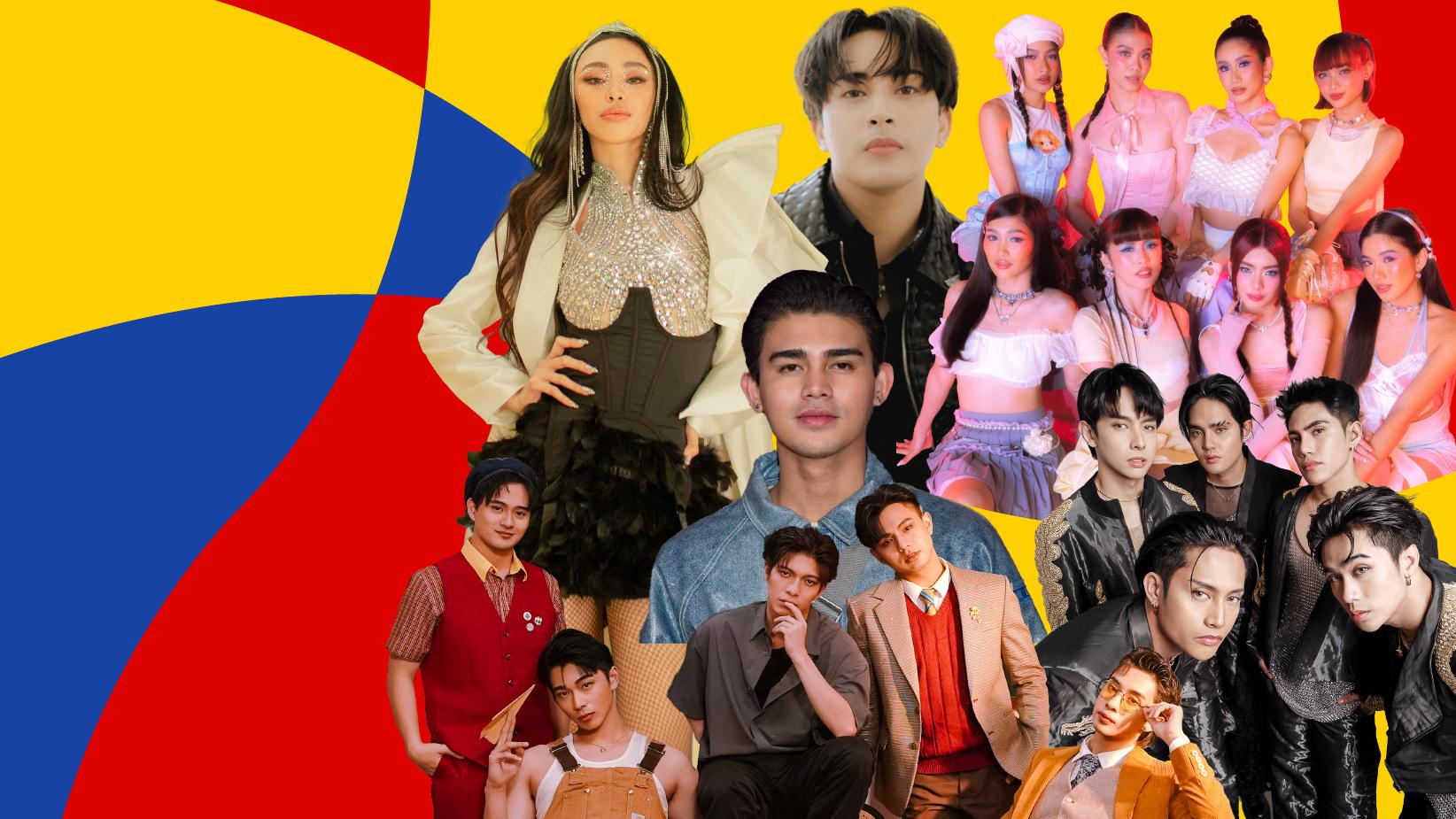
list
14 Pinoy Pop Acts You Should Know: G22, Maki, KAIA, ALAMAT, & More
Love K-pop or J-pop? The Philippines has an abundance of talent to offer in the world of P-pop. From BGYO to Maymay Entrata, get to know some of the groups and solo artists who are helping Pinoy pop blossom.
It's no secret that Filipinos can unapologetically belt out a song from Celine Dion, Whitney Houston or any pop diva on the mic. But beyond the viral videos of them singing their hearts out in malls or in their homes, the Filipino music scene is vibrantly filled with heart and emotions; and often taken over by powerful soloists like the Philippine pop princess Sarah Geronimo, balladeers like Martin Nievera or Morisette Amon, and acoustic/rock bands like Ben&Ben or Up Dharma Down that often sing about love, heartbreak and life.
Within the last decade, we've seen an evolution in the Philippine music scene: while solo stars continue to shine, pop groups have begun to take over the spotlight. The concept of pop groups have existed before in Philippine entertainment, however, were usually formed through variety shows or composed of actors and actresses — not necessarily pop idols that you can compare in other Asian music markets like Japan and South Korea.
It really wasn't until 2018, during the peak of third-generation K-pop, where we saw the beginning of first generation Pinoy pop idol groups. Inspired and influenced by the K-pop idol training system, some P-pop entertainment companies have begun implementing similar systems, or inviting Korean mentors who are active in the industry for any vocal and dance training needed.
Two of the most notable first-gen P-Pop groups are SB19 and BINI, who are at the forefront of bringing P-pop to a global audience. Five-piece boy band SB19 became the first Southeast Asian group to be nominated for a Billboard Music Award in 2021, and their 2023 single "GENTO" was approved for GRAMMY consideration last year. Meanwhile, eight-piece girl group BINI have earned the title as the Nation's Girl Group after a string of successful viral hits including "Salamin, Salamin" and "Pantropiko"; just this year, they made history as the first P-pop act to perform at KCON in Los Angeles.
Of course, the P-pop universe wouldn't be complete without solo acts. P-pop fans love to celebrate the timeless discography of Sarah Geronimo or gush over Asia's pop heartthrob Darren Espanto, and there's always new individual talent proving that the scene is still thriving.
As major P-pop stars continue to make waves, there's tons of blossoming acts who are helping to raise the Filipino flag in the global music scene. In light of the bright future ahead, here are a mix of P-Pop groups and soloists you should check out.
ALAMAT
If the actual country of the Philippines were a pop group, it would be ALAMAT. The six member group — composed of Taneo, Mo, Jao, Tomas, R-ji, and Alas — under Viva Records values Filipino culture in their concepts.
Each member hails from different regions of the Philippines and also speak different dialects from their respective regions. Using dialects and culture to their advantage, ALAMAT often incorporates traditional folk dances, instruments, and lyrics in their native languages; and blends them into the modern sounds of hip-hop, R&B and dance.
BGYO
Formed in 2018 and officially making their debut under Star Music in 2021 with "The Light," the quintet composed of Gelo, Akira, JL, Mikki, and Nate are known as the "Aces of P-Pop." The name BGYO even celebrates their heritage, as it's an acronym for "Becoming the change, Going further, You and I, Originally Filipino."
Often fusing pop sounds with R&B, the boy group isn't afraid to get quirky with their concepts — whether they're singing a ballad in suits or wearing vibrant oversized ones. As a result, their music is helping BGYO score big wins: Their single "The Baddest" made them the first Filipino act to top Billboard's Next Big Sound chart in 2021, followed by P-Pop Group of the Year at the TikTok Awards Philippines in 2022.
KAIA
Debuting under SB19's former label, ShowBT Philippines, KAIA is composed of members Angela, Charlotte, Sophia, Alexa, and Charice. The quintet officially made their debut in 2022 with their lead single "BLAH BLAH" — a powerful EDM-pop track that can be considered for your gaming playlist.
The name KAIA is a double entendre: a Cebuano word "kinaiya" meaning one's self and personality; and the Tagalog word "kaya" which roughly translates "to be able to" or "can do." In other words, a P-pop girl group that can give you the extra boost when you need that sonic encouragement on the daily.
Inigo Pascual
One of the Philippine heartthrobs, Inigo Pascual is a suave and smooth pop soloist who aims to make you swoon with his R&B-pop serenades. His pop-doowop hit "Dahil Sa'Yo" off his solo debut of the same name became the first song to top the Billboard Philippines Top 20 chart in 2016.
Right from his debut, the actor and singer/songwriter continued to soar in his career when he released his international single "Options" in 2019. Just last month, the chart-topping singer unveiled his latest project, Basta't Alam Kong Tayo 1, a three-track single-album under Republic Records Philippines.
G22
If you already listen to K-pop, then you are familiar with the girl crush concept where the sounds are bass-heavy and the looks are all about dark outfits with smokey makeup. If that's up your alley, then check out G22.
Under Cornerstone Entertainment, the former quartet-turned-trio composed of members AJ, Alfea, and Jaz are known to be the "Female Alphas of Philippine Pop." The trio officially made their debut in April 2022 with their first single "BANG!" which was then followed by their second single "Babalik!" in May. But don't be fooled by their powerful demeanors — the trio also has a light and soft side to themselves in their B-sides and singles too.
VXON
If G22 is dubbed as the "Female Alphas of Philippine Pop," then VXON are said to be the "Monsters of P-pop" — so don't be fooled by the pretty boy looks VXON may carry. They are a P-pop group that can balance bubblegum pop with beast-like concepts, as if you're watching the transformation of boys to men. But at their core, they're making music to capture your heart (see for yourself with their viral R&B hit "Sandal").
Making their official debut in January 2022, the group consists of five members: C13, Franz, Patrick, Vince and Sam. After a big first year — they won Favorite Rookie P-Pop Group at Nylon Manila's Big, Bold, and Brave Awards in 2022 — VXON have continued winning hearts, most recently delivering a series of swoon-worthy live sessions on their YouTube channel.
Maymay Entrata
A multi-talented soloist, Maymay embodies Filipino entertainment, a fun and vibrant breath of fresh air within the Philippine music scene. She takes pride in her Visayan roots and stays grounded from her humble beginnings, even naming and singing her songs in Visaya, Tagalog and English.
First known as the season 7 winner of "Pinoy Big Brother" in 2016, Maymay has made a name for herself as a musical artist in the last couple of years. Signed under the same label as BINI and BGYO, Maymay is grandiose in her music, presenting a plethora of genres in her discography, from disco to dance pop to a little salsa with visuals that encapsulate inspiration from Filipino culture. "Her journey is only going further as she teased her first and upcoming international single "Paradise" at the 'ASAP Natin 'To in California' concert earlier this month."
PLUUS
Formerly known as SBTCBoys, the six-member boy group composed of Theo, Gab, Justin, Yen, Haro, and JL made their debut in 2023 with their first EP +.Y.M. (stylized and read as Time). Steering away from the traditional lead single promotions, PLUUS broke boundaries by promoting three tracks at once with "Amigo," "My Time" and "Cross My Heart" last year.
The trio of tracks also displayed PLUUS' wide array of talents: "Amigo" is a hip-hop-heavy dance pop track celebrating camaraderie; whereas "My Time" follows the personal stories of being an idol; and "Cross My Heart" is a love song about letting go. They've continued showing their versatility in 2024, with the airy single "Universe" and the thumping track "Summotion."
1st.One
1st.One was already putting themselves on the map, and embodying their name, before they even made their official debut in July 2020; the month before, they became the first Filipino act to perform at the Seoul Music Awards. The six members — Ace, Max, Alpha, J, Joker, Jayson — debuted under the Philippine subsidiary of FirstOne Entertainment in South Korea with their single electronic pop single "You Are The One (Ttak Maja Nuh)."
If you're into the nostalgic sounds of second-gen K-pop, 1st.One may be your seamless transition into P-pop. But just like any other group, they've explored different sounds and concepts; earlier this year, the group switched it up and dropped their R&B slow jam single "Dito" that was choreographed by member Max.
DIONE
1st.One's sister group, DIONE (or stylized as D1ONE), also debuted in 2020, carrying that girl crush aesthetic with them. Some members of the group were first introduced as LUNA, a project trainee group under FirstOne Entertainment set to debut. Eventually, the quartet composed of Joyden, DK, Clara, and Ella released their digital single "BLING BLING" in April 2022.
Upon their official debut, the quartet's image delivered expensive pop, soundtracking their luxurious, high-fashion looks with EDM-driven pop — somewhat reminiscent of the sounds of second-gen K-pop groups like 2NE1 and After School. Their music is fun, energetic and quite tantalizing.
YARA
Fairly new to the game, YARA is oozing with charisma, from their rap flows to their dance moves. Signed under Sony Music Philippines, YARA consists of four members — Gelou, Rocher, Christa, and Kim — who blend rap, hip-hop and pop all together.
Debuting in March 2023, the P-pop girl group released their first single "Adda" (short for "Apat Dapat Dapat Apat"). Earlier this year, the group revived the old school bubblegum pop song "Bakit Papa?" by variety show girl group Sexbomb Girls, and gave it an R&B twist. Their recent track "Katawan Flow" sees the group making the dancehall genre their own — hinting that their musical direction will always be unpredictable.
Maki
Maki isn't your typical idol pop singer, but that's exactly what makes him a promising soloist. He seamlessly blends alternative rock and pop together, triggering a listener to get in their feels along the way.
When he's not dancing to BINI's "Cherry On Top," you can often find Maki strumming a guitar, questioning various love-related situations. And it seems his approach is working: his latest release, "Dilaw," topped the Billboard Philippines' Hot 100 and Billboard Top Philippines Songs for multiple weeks in July.
CALISTA
Officially making their debut under Tyronne Escalante Artist Management and Merlion Events Production in 2022, CALISTA is working toward being the next P-pop greats. Carrying more of a girl crush vibe, CALISTA's sounds blend dreamy pop with 808 beats and R&B.
Originally debuting as a six-member ensemble with the trap-inspired pop single "Race Car," the group has spent the majority of 2024 as a quartet comprised of Anne, Dain, Elle, and Denise. Their latest single "Let Me Know" has made its way around TikTok, helping them get one step closer to achieving superstar status.
ECLYPSE
Originally known as YAMA, ECLYPSE is fairly new, but definitely promising, to the P-Pop game. Comprised of six former participants of reality-survival show "Top Class" (Lex, Gilly, Dean, Clyde, Gab, Joshuel) and one who was announced as a member on the live-streaming app KUMU (Rave), the group have been forming since 2022 and made their official debut this year under GKD Labels.
Whether they're taking on a light or dark concept, their sounds revolve around the EDM genre — a seamless fit for their tones and voices. If you're a fan of synths, harmonies and falsetto, this may be the group for you.
Latest News & Exclusive Videos
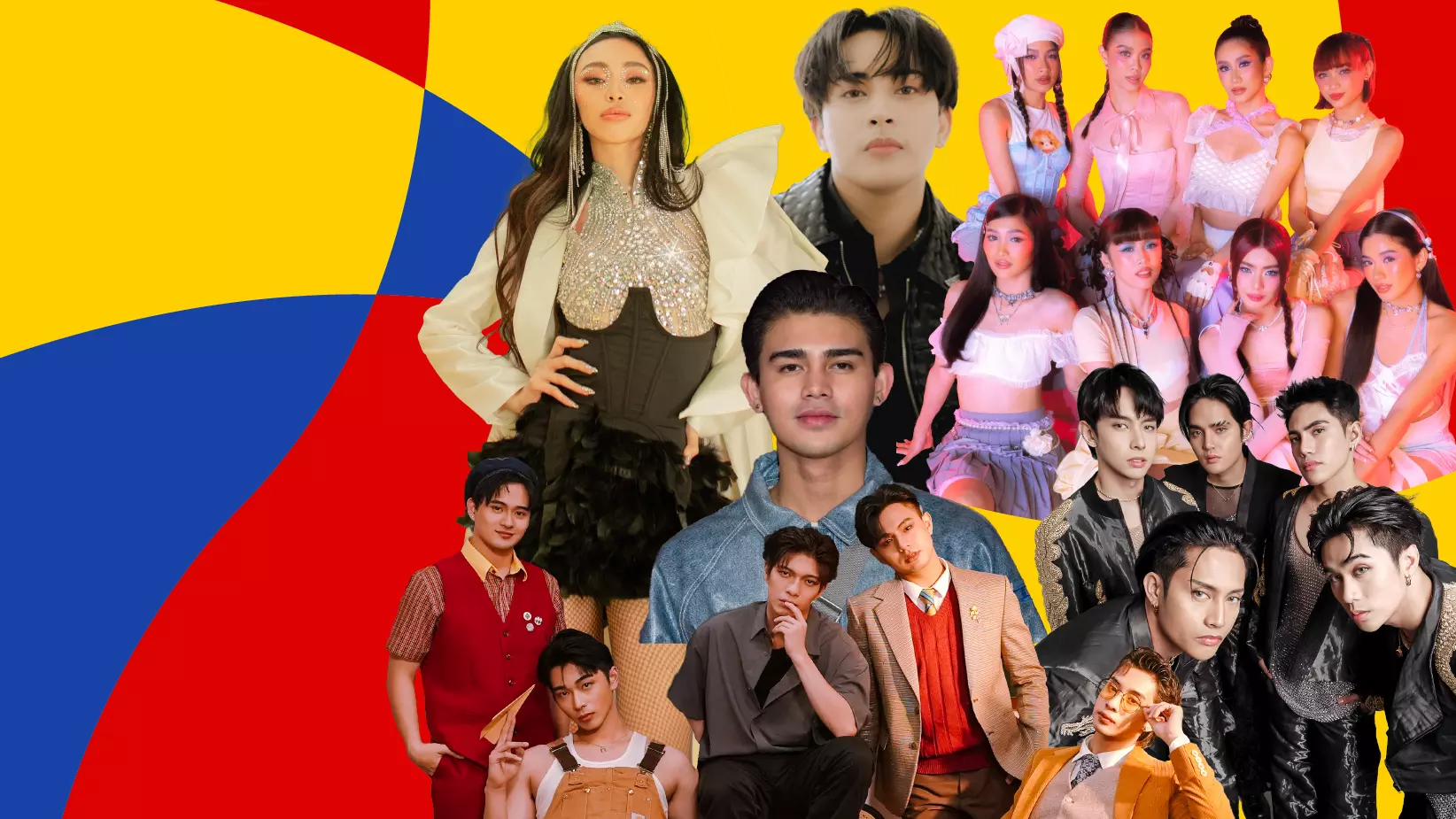
14 Pinoy Pop Acts You Should Know: G22, Maki, KAIA, ALAMAT, & More

Watch Loretta Lynn Win Best Country Album In 2005
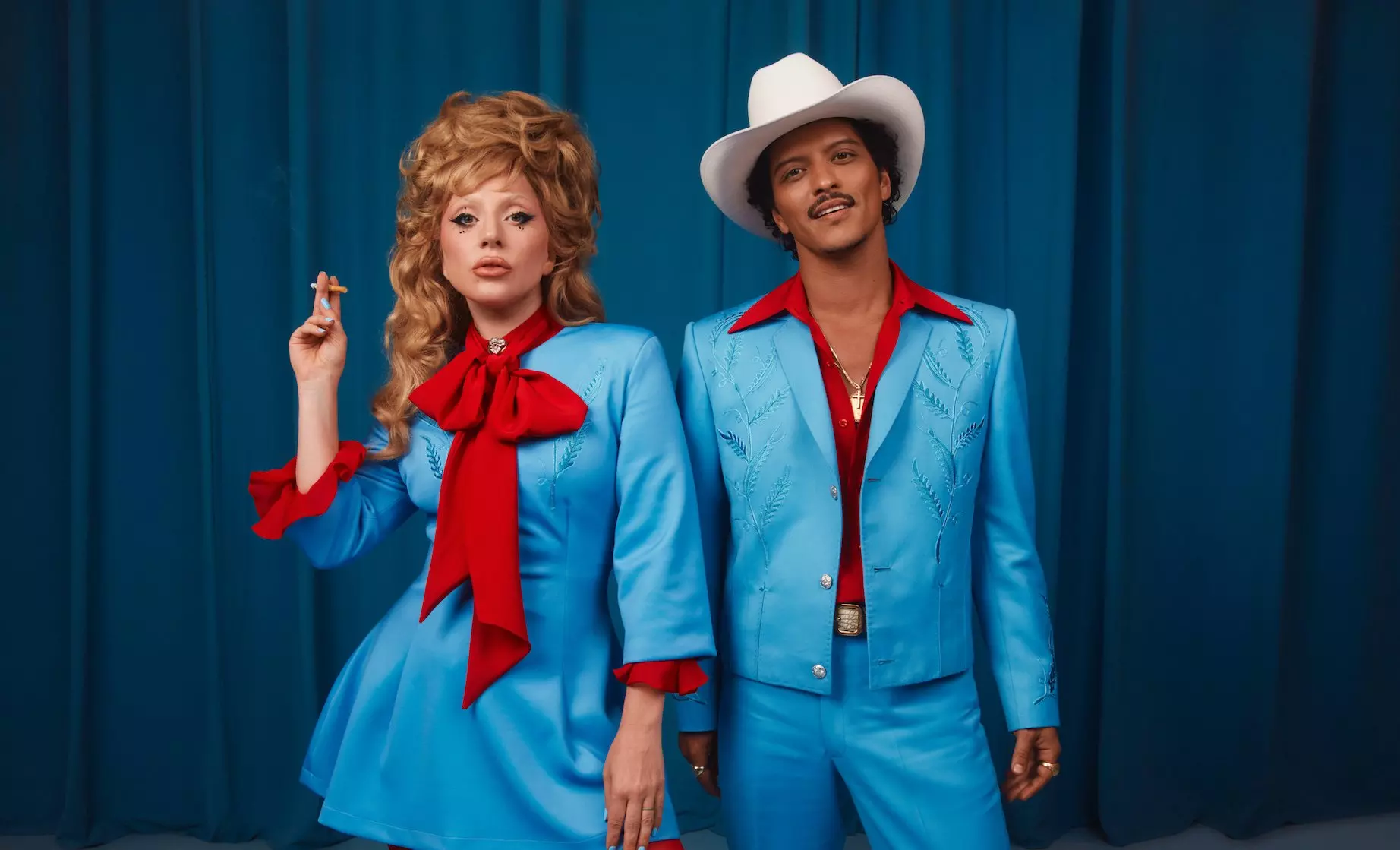
New Music Friday: Listen To Songs From Lady Gaga & Bruno Mars, LISA & Rosalía, Benson Boone & More
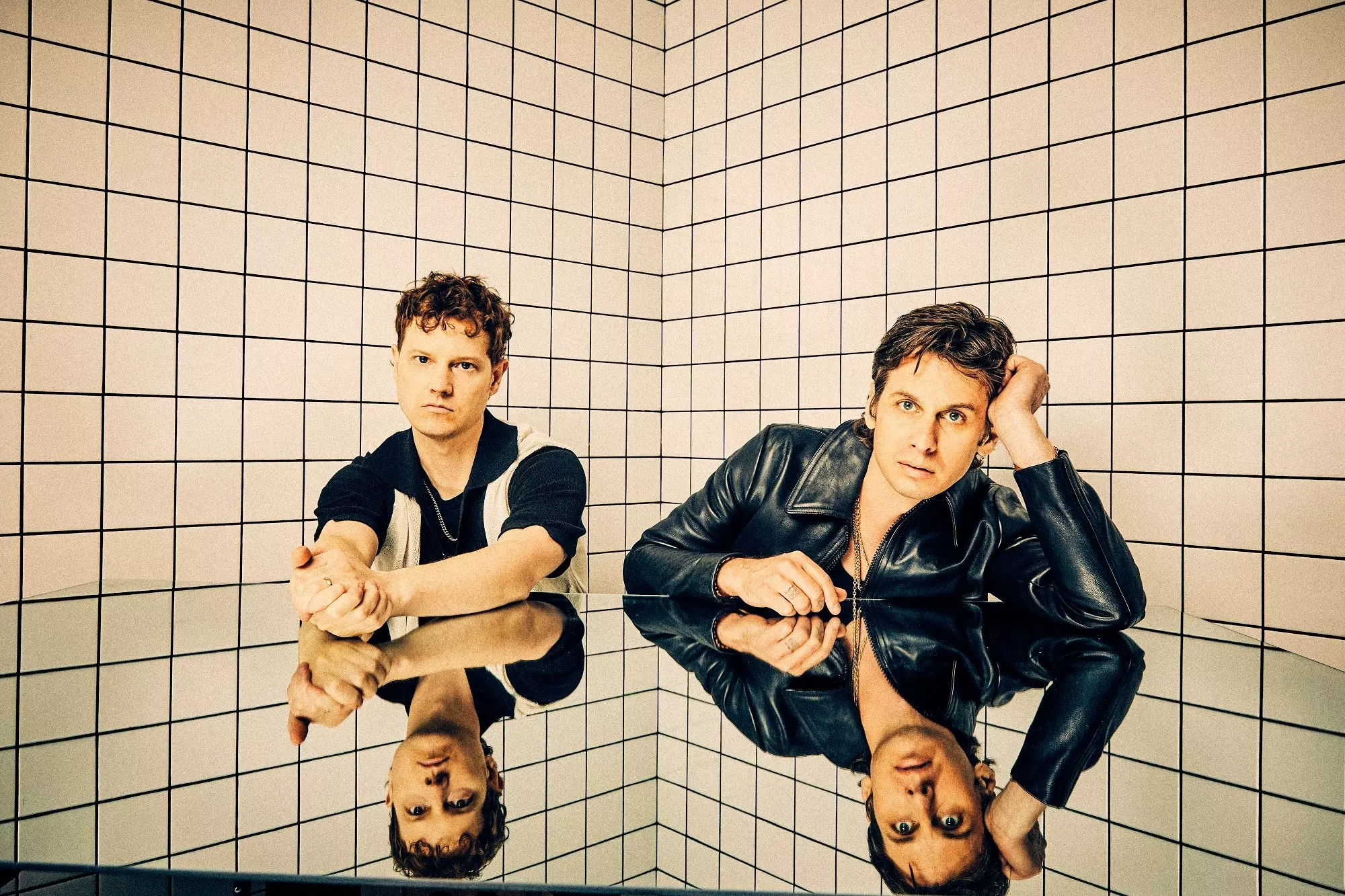
On Their First Album In 7 Years, Foster The People Explore A New State Of Mind
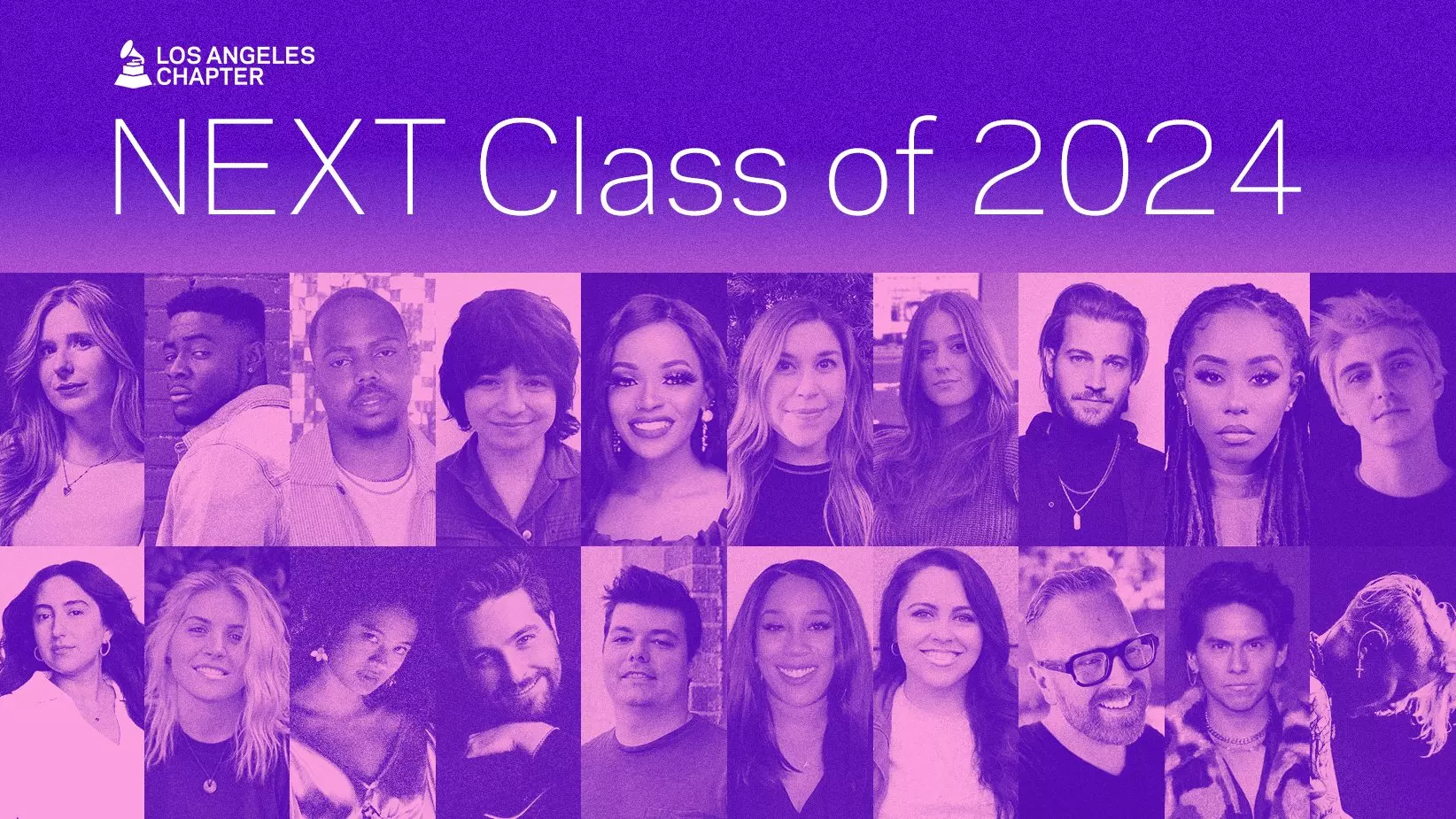
The Recording Academy's Los Angeles Chapter Celebrates The NEXT Class Of 2024: Building Community For Future Leaders
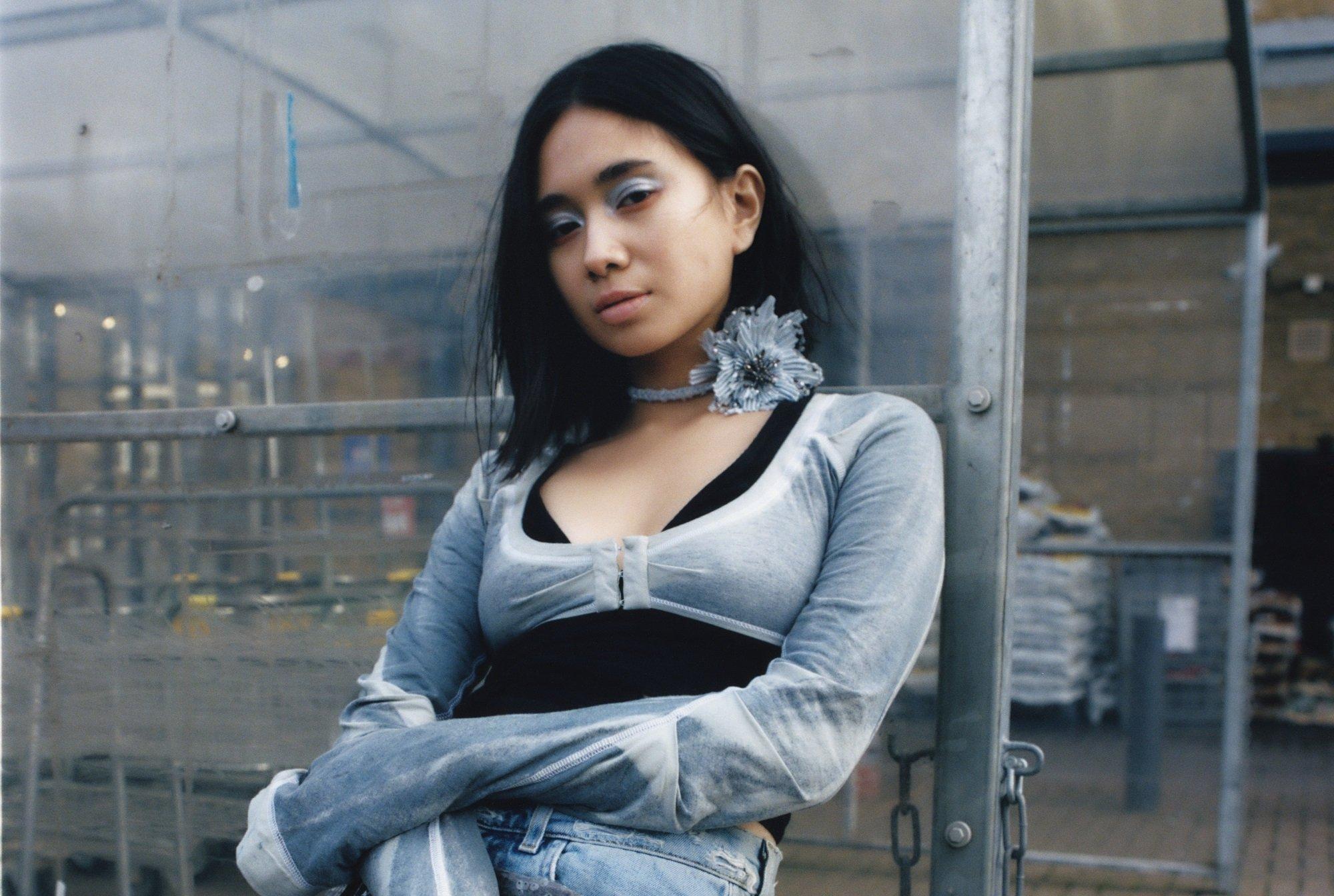
Photo: Annie Lai
interview
On Her New Album 'Buzz,' NIKI Embraces Radical Acceptance & The Art Of Letting Go
While processing a whirlwind of releases and tours, NIKI dug deep to create the empowered, thoughtful 'Buzz.' The singer/songwriter details the creative process behind her latest LP, and how she arrived in her "no clowns era."
At multiple points during our conversation discussing her latest album Buzz, NIKI falls back on one phrase. "I should speak for myself." While she cuts herself off often, physically but gently coaxing herself back on track, NIKI's latest release is defiantly personal.
"I think it's going to mark a new era for me musically. Personally, it is my favorite thing I've ever done." she says of the album.
The past few years of NIKI's life have been spent in constant flux. The artist started her career as a performing artist on YouTube, did a headlining tour in support of her second album Nicole, and eventually became the first Indonesian artist to perform at Coachella (alongside fellow 88Rising labelmate Rich Brian). For the former self-proclaimed perfectionist, the exhaustion and rudderlessness of touring threw open the doors to some much needed introspection. When NIKI found herself alone, she realized had no idea who she was or what she was doing. So, she did the only thing she could do: write songs.
"I write songs as a way to process my life as it's happening. Everyone has different ways of coping, and that just happens to be mine," the 25-year-old singer confesses. Buzz was written between tour dates, with no "concrete vision" in mind; in fact, it was probably the first time that NIKI had truly processed everything that had happened in her career. "Writing 'Buzz' was a very reflection-oriented time. I was making sense of my present and how my past has sort laid down the stepping stones, and everything in between."
Confronted with a constant feeling of being uprooted and the vast unknown, NIKI realized that keeping a tight grip on how she approached, understood, and perceived her emotions was counterproductive. "Writing 'Buzz' was my way to deal with a lot of this existentialism that I was coming into for the first time in my early 20s," she continues. "I feel like everyone is starting to ask the big, deep, difficult questions when they start to live on their own and have to trudge through life as their own person."
With an intimate, oft-minimalistic sound and almost stream of consciousness lyrics Buzz is an album for letting go of control and the learned behaviors of perfectionism in the favor of self-awareness, where NIKI processes "a spectrum of world weariness, of excitement, of joy and pain and all the moments in between."
"Buzz" is where she finds herself anew. She takes her time mulling over the hard questions on "Nothing Can", allows herself to grieve the loss of a great love on "Paths", breaks the cycle of generational trauma on "Strong Girl" and "Heirloom Pain", and learns that there is "freedom in accepting that everything is just incomplete and messy all the time."
This interview has been edited and condensed.
When I was reading about the album, it appeared that you faced an identity crisis while making it. Do you feel satisfied with it or are you anxious about how people will receive it?
I think it's both. Anytime I'm on the cusp of releasing something, I'm always a little bit nervous as to how people are going to receive it. At the same time, I feel like I made this record with full conviction in myself and in my artistry.
I think this is really the first time that I'm able to say that. I steered the making of this record myself.
A lot of the songs on 'Buzz' felt like waves, with a very natural flow and progression to the songs on the album. It felt like you were giving into a feeling or embracing something. Did you allow yourself to feel [this flow] or did you have a concrete vision?
Buzz was the first album that I made that I didn't actually have a concrete vision in mind. It was just an organic synthesis of what's been happening over the past two years.
Two years ago I started headline touring, and that inspired a lot of the album. Just this feeling of constantly being on the go, being uprooted time and time again, so the theme of acceptance is a huge one on this album. The acceptance of life being a constant state of uncertainty. We, as people, are constantly developing and irresolute. So this album was kind of made to process those feelings.
It’s an album of nuance, of nestling into this area of gray that we so often wrestle with in life. I definitely tend to see things as black and white. I was raised to think that way, with my Indonesian upbringing. My mom was very religious, so I think this album is about unlearning a lot of that stuff, taking what serves you from childhood and letting go of what doesn't, and embracing that things will feel messy very often.
Yet you ended the album itself on a very hopeful note. Was that intentional?
Absolutely. Sometimes I joke that the universe has its foot on my neck right now. But I think, in general, I'm quite an optimistic person, or at least I try to be. I gravitate towards art or music that tends to skew that way, because I think we all need a little bit of hope in this very difficult, scary world.
The record ends with "Nothing Can." I love that song, because it's a blend of optimism, but also it's just telling it as it is. Like, nothing and no one will be able to save you and I think that was an important thing that I had to teach myself.
Growing up, you watch a lot of movies and so much of media is like, somebody's going to come swooping in knight in shining armor-style and maybe rescue you. Or a job will save you from your pain or the perfect fill-in-the-blank is gonna be the answer. That's impossible. You are responsible for your own happiness. What "Nothing Can" is about is that despite the mess and the suffering and the pain there are still moments in between that make everything worthwhile.
Did you go through a similar process of realization when it comes to making music? A moment where you thought, 'Maybe I'm expecting my career to make me happy but it should be the other way around?'
How do I eloquently say this? It's like... before Buzz, and even before Nicole, the way I perceived making music was like aceing assignments. I think I had always been a little bit of an overachiever. Buzz was my first real, true exercise in just writing and making art just to make art for myself versus to fulfill expectations. I found a lot of artistic healing through making this album because it was the first time I really kind of put my head down and was like: I'm going to make an album for myself in a way that I want and that feels authentic.
I realized quickly that every time I hit a milestone, I would aspire for the next milestone. And then there's always sky above sky — that is what my mom always told me. There is always something more to aspire to. So you really have to find peace and joy within yourself in order to show up the way you want to in your life. I wrote Buzz, just to help myself let go of the perfectionist streak.
So, if you were to describe the relationship between 'Nicole' and 'Buzz' knowing what you do now, what would you call it?
I have fondly nicknamed Buzz Nicole's older, wiser sister. Nicole walked so that Buzz could run. Nicole was a very diaristic window into my past and Buzz is very much rooted in my present. Nicole is about the subject matter that's important to you when you're 17, like your first ever breakup with your first love that feels so cataclysmic and earth-shattering. That's no longer relevant to me the same way that things are happening in my 20s now.
Nicole was also sonically a lot more pop. On Buzz, I was inspired by a lot of artists. Obviously Joni Mitchell, and a current artist that I really love that I feel like echoes Joni Mitchell is Madison Cunningham. I am so inspired by her musicianship and guitar playing specifically. It made me think: I would want to have an album that I'd be so stoked to play every single night for however long on tour and I never get sick of these songs. Buzz is more musical, and there is a looseness to it that I feel Nicole lacked.
I also remember you saying in an interview that back when you wrote 'Nicole,' you went very heavy on imagery and metaphors. In contrast, 'Buzz' is still poetic, but very rooted in practicality. Do you think that's a natural consequence of growing up, and dealing with the realization that once life has hit us in the face, we don't prefer not to look at things with rosy lenses?
[Laughs.] I think it is a natural consequence of growing up. I think Nicole was so unapologetically schmaltzy. The way I wrote, I definitely cringe now because, you know, it's that 17-year-old drama. Everything feels so blown up out of proportion when you're 17, right? It was so emotional. The way I write [now] is totally different because there's a big dose of practicality and pragmatism in the way I perceive things. I think it's a lot more emotionally healthier to balance emotion and reason, than having emotions just completely drown reason.
Buzz, specifically, is very much a reflection of the kind of writing that I gravitate to now, which is a lot less like "My world is going to end because you're leaving." Because you know when you're 25, you don't really necessarily feel that anymore. I feel that's really obvious in songs like "Take Care" and "Paths" where it is an older kind of love. A significant relationship of mine ended, and I still very much have only respect and love for this person and also wanting the best for them. I feel like, on Nicole, it was all so punitive. It was like, "You must be punished for how you hurt me!"
Was there anything that helped you learn to deal with things in this way? I did read that the album also contains some lessons that you learned in therapy.
Therapy has had a direct link to this record. Therapy has been transformative in the way I think and therefore the way I think shapes the way I write, and the way I write shapes the album that I make.
For example, I call "Heirloom Pain" and "Nothing Can" my "radical acceptance" songs. That was a term that I learnt through therapy. Radical acceptance does not mean demeaning your grief or repressing your pain. Radical acceptance is saying, This really sucks, but I'm going to respond to this in a different way. Without therapy, I probably would still be writing very punitive schmaltzy Nicole songs.
I think everything can be processed, though! I feel like Buzz has a balance. I feel like I'm still pretty petty on "Colossal Loss" and "Focus" is just shade central.
"Focus" really made me think you must be in your 'I'm not your therapist" era.
Exactly, I'm in my "no clowns" era. [Laughs.]
Radical acceptance makes a lot of sense. "Heirloom Pain" has this keen realization that our parents did their best, and they're only human, so you can't really blame them.
I think it humanizes everybody in [your family tree] that came before you, and at the very end, I flip it around onto [the listener] and [the song says] "You're gonna fall in love and f— up too."
We are born and everyone does the same thing over and over. We never learn! But at the same time, it doesn't shy away from the genuine pain and trauma. I literally called out my dad's temper and my mom's mistakes. Sometimes I'm like, 'Why did you guys not think about this before you had kids?' [Laughs.]
As you grow up…your parents kind of fall off the pedestal, you start to get on their level. You see them as humans.
This is such a primitive album for you in some ways. What was the recording process for this like?
When I am in work mode, I don't always feel it. If I'm singing a painful song, usually that hits me a little bit later. When I recorded "Paths," that was basically a one-take thing that I did in my own studio at home. I remember just singing through the whole song for the first time, and at one point in the middle, I choked. I started to tear up because I felt so emotionally moved.
With this album specifically, I've learned my methods. I never do more than three takes, especially for vocals. If I do more than three takes, it starts to... you know the feeling of when you look at a word too long and the word doesn't look like a word anymore? When I sing the same thing too many times, I start to not feel it anymore. ["Paths"] felt like exposure therapy. I wrote the thing that I was really scared to write and then I was singing it.
It's interesting you say that you don't like singing your songs on repeat. What is your relationship with touring like then? Does it get exhausting performing the same song or set over and over?
Touring is definitely a different beast. I feel like it's more important to get the right take when you're recording an album, because an album is forever. A show is different every single night. To be completely honest, sometimes as a performer, if you do it so many times like it's muscle memory. You can slip into autopilot over time. The constantly changing variable on tour is the crowd. So whatever is happening in the crowd is usually enough to inject a newness to the show.
I also wrote Buzz for this reason. I wanted an album that felt looser and felt more relaxed even in its DNA so that when I go on tour, I can play it as loosely as possible to create space for variety.
It also feels like you've learned to be more accepting. Your recordings used to be a fairly solitary affair but now you've actively started involving more people in it.
I definitely ventured out into involving more collaborators and it's not just me and my laptop and headphones anymore, but I definitely still am very selective with who I let into my musical universe, because I have a specific vision of how I want things to sound, and what kind of environments I work best in.
The way I like to work is that I start a skeletal framework for [a song], I produce it a little bit, record some parts. Then I call a producer that I respect, who I've seen work on my other favorite artists and then I give them that framework and then we finish it together. I worked with Ethan Gruska, who worked with Phoebe Bridgers, and Tyler Chester – who helped me produce "Strong Girl" – worked on all of Madison Cunningham's stuff. It's really fun to keep the circle small.
A lot of songs on 'Buzz', like "Blue Moon," "Paths" and "Magnets" talk about putting faith in a higher power.
I grew up very religious. My mom was a singer at church, so God was always an integral concept growing up. I wouldn't call myself a Christian now, but I definitely still believe in something greater than all of us. Julia Cameron, who wrote The Artist's Way, said: "God can be God to you, or it can stand for Good Orderly Direction." I think it is a beautiful way of thinking about it.
I definitely am also an astrology girlie. I do believe that we were all made with intention. I do think there's a great creator out there and I believe that there is something out there — the universe, God, whatever you want to call it — that's guiding us or has our best interest.
Do you like revisiting your past stuff? I ask this because it feels like with every new album, you have proverbially wiped the slate clean.
I will literally listen to my work or my music a million times before it's out. And then once it's out, I rarely ever revisit it.I almost see it as yours; it's the world’s now. It's ours. It's not something that I have been intentional about. Even when I had a YouTube channel when I was 15, I did this. I would watch my video and edit it five million times. And then as soon as I uploaded it, I never watched it again.
I guess I do this to process my life as it's happening. Once it's shared, it's difficult for me to view it as just my own anymore. That's why every time I move on to a new project it feels like a completely different thing, because I never look at my past work. I never draw from that as an inspiration. I look forward instead.
The Latest Pop Music News & Releases

14 Pinoy Pop Acts You Should Know: G22, Maki, KAIA, ALAMAT, & More
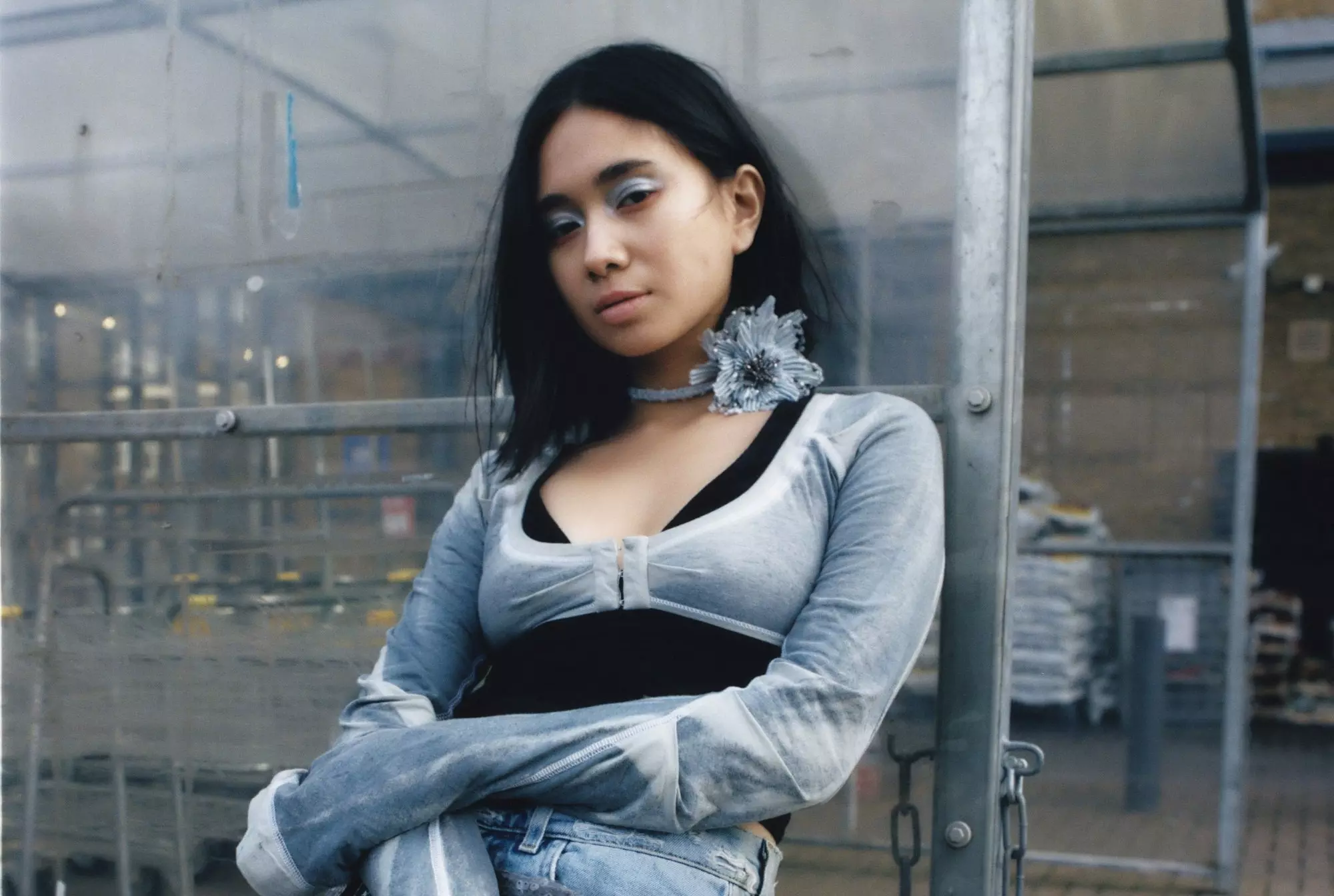
On Her New Album 'Buzz,' NIKI Embraces Radical Acceptance & The Art Of Letting Go
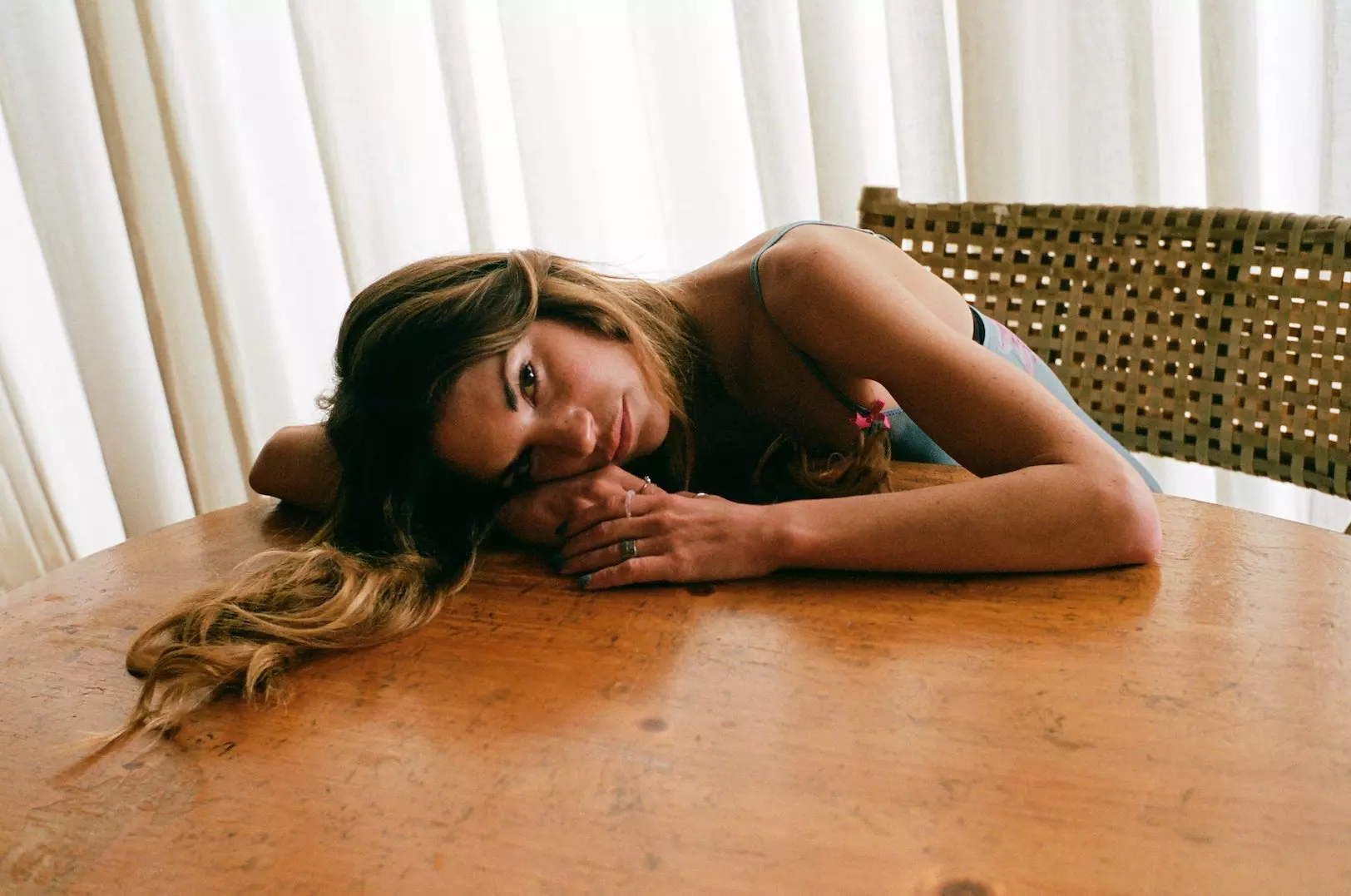
Meet Amy Allen, The Hitmaking Singer/Songwriter Behind Sabrina Carpenter's "Please Please Please" & More Pop Gems
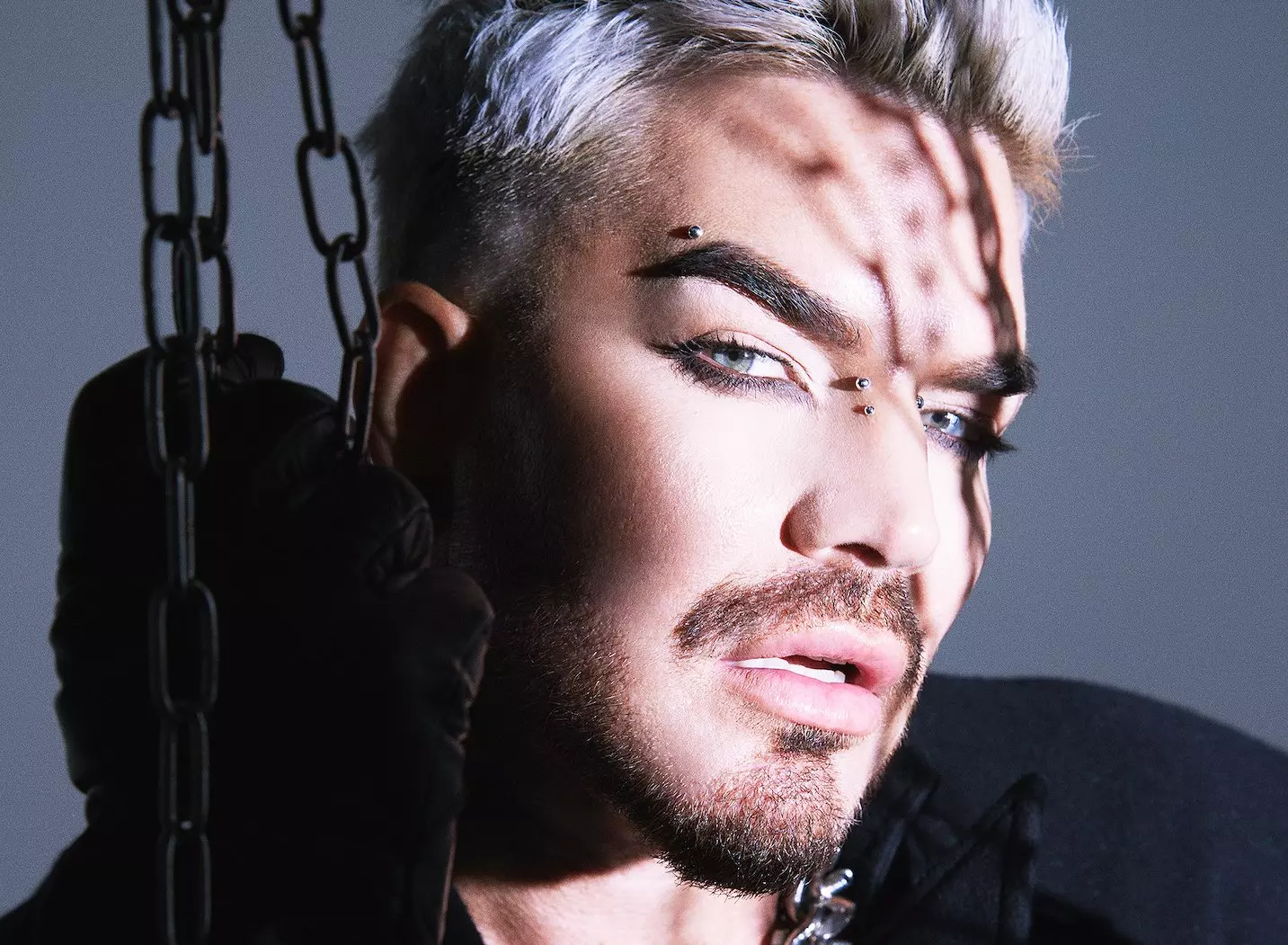
Inside Adam Lambert's 'Afters': How '90s House, Clubbing & Lots Of Sex Inspired His Most "Liberated" Music Yet
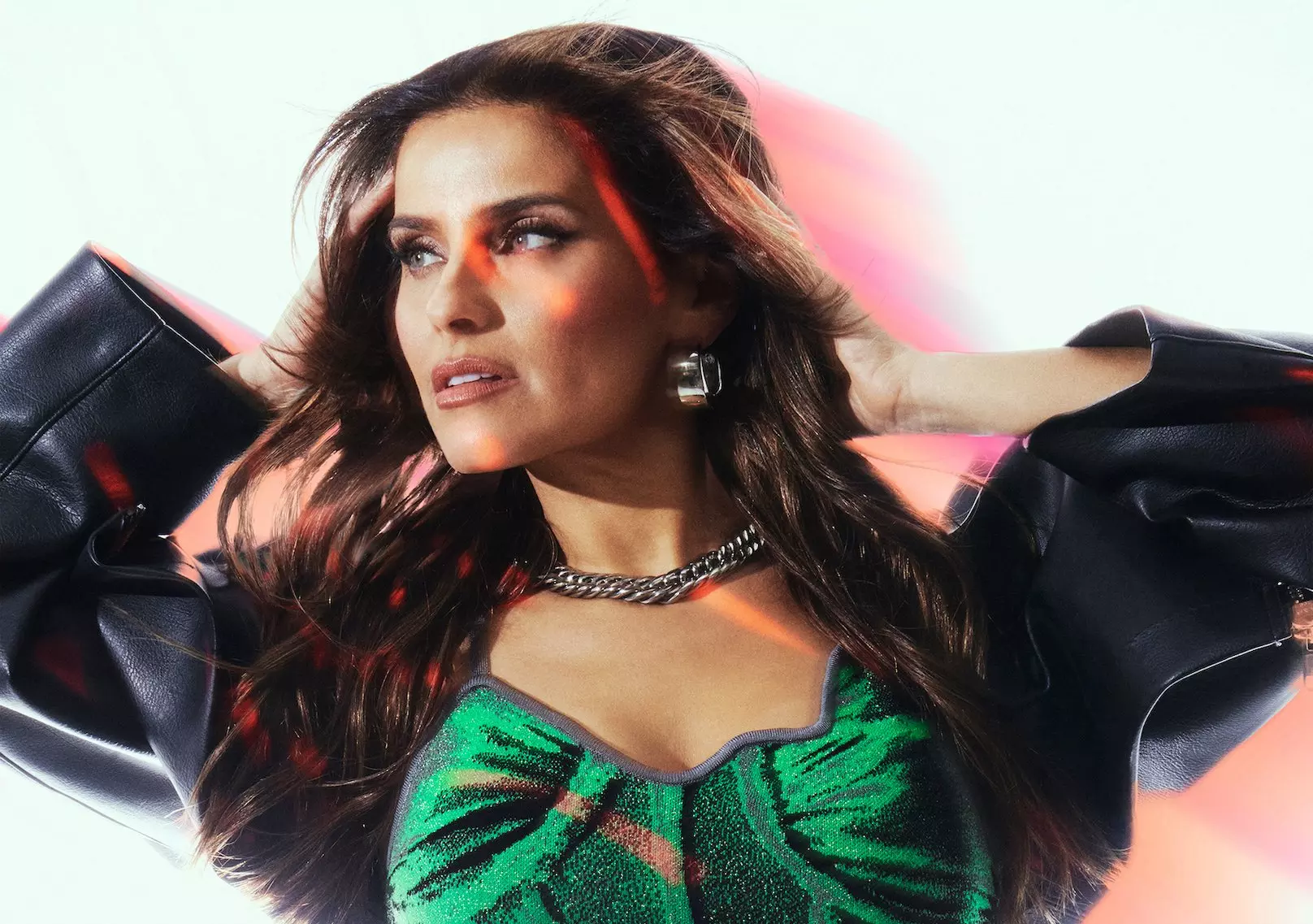
Nelly Furtado On How Remix Culture, ADHD & Gen Z Inspired Her New Album '7'
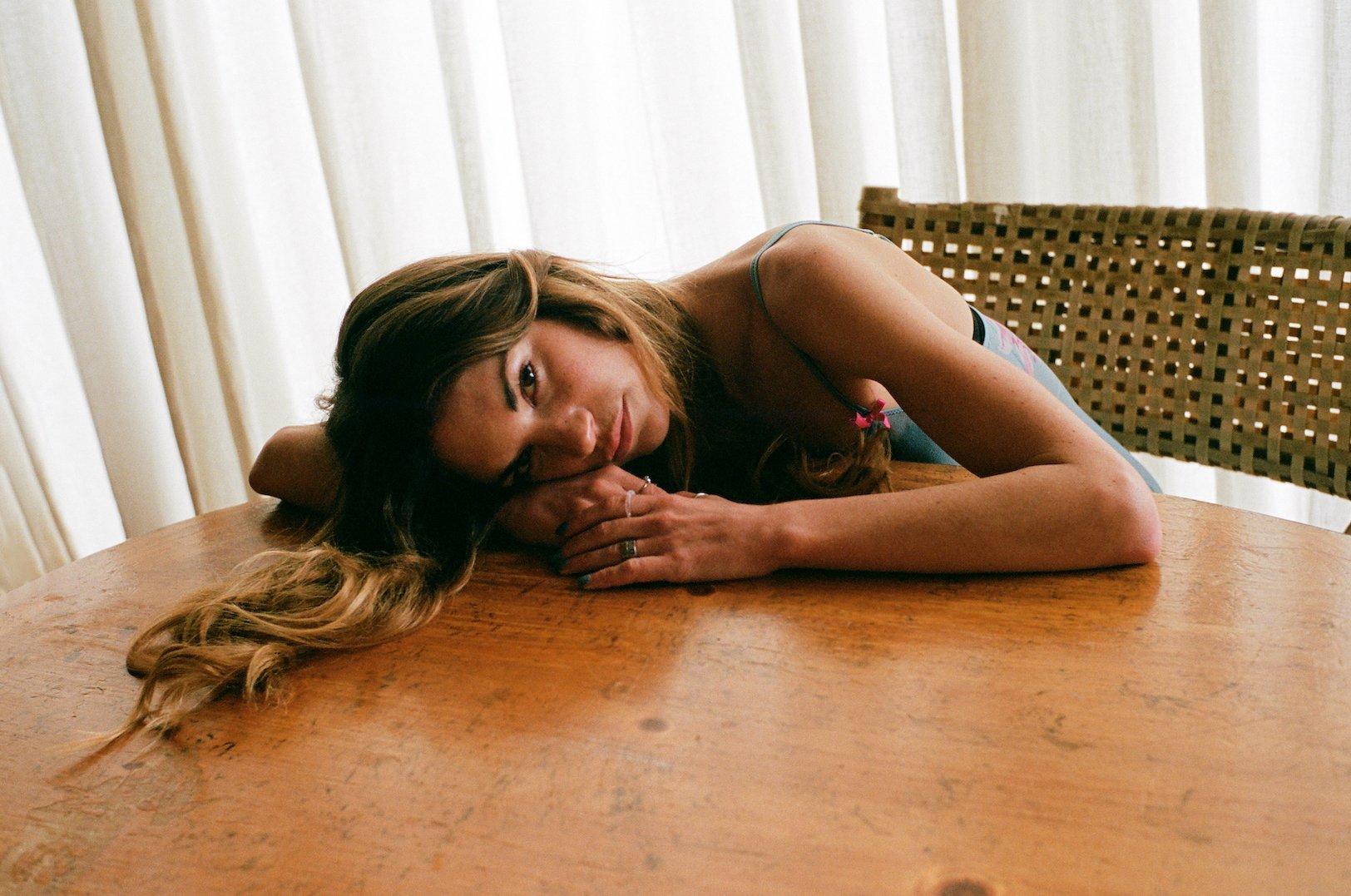
Photo: David O’Donohue
list
Meet Amy Allen, The Hitmaking Singer/Songwriter Behind Sabrina Carpenter's "Please Please Please" & More Pop Gems
Amy Allen has penned hits for stars like Halsey, Harry Styles, and Tate McRae, including two recent smashes from Sabrina Carpenter. As she embarks on her own artist journey, learn more about the GRAMMY-winner's already dazzling career.
Some artists are lucky enough to have a moment: a song of the summer, a radio hit, or a point at which their song dominates the pop conversation. Before even launching her own singing career, Amy Allen has done just that — multiple times.
In 2022, the Maine native contributed to hit songs from Harry Styles, Lizzo, Charli XCX, and King Princess; at the 2023 GRAMMYs, she was one of the inaugural nominees for Songwriter Of The Year, Non-Classical, and celebrated an Album Of The Year win alongside Styles thanks to her work on Harry's House. And as of press time, two songs she co-wrote with Sabrina Carpenter are in the top 10 of the Billboard Hot 100 chart: "Espresso" and "Please Please Please," the latter of which hit No. 1.
When you have a resume and catalog as impressive as Allen's, it's hard not to get stuck in a run of highlights — but Allen's writing style is so full of remarkable emotional depth and inevitable hooks that her life and career deserves further exploration. After binging on classic rock and performing in rock and bluegrass bands in her youth, Allen began writing songs for others in the mid 2010s and has only continued to expand her impact on audiences and collaborators alike.
"Amy is a once-in-a-lifetime writer and friend — it all comes to her very naturally and effortlessly," Carpenter recently told Variety. "She's super versatile: She can wear any hat and yet it still feels authentic. I've learned a lot from her and admire what an incredible collaborator she is."
Along the way, Allen has continued honing her skills as an artist in her own right, releasing a handful of EPs and singles since 2015, initially under the name Amy and the Engine. But on Sept. 6, she's ready to fully introduce herself with her debut album — fittingly titled Amy Allen.
Just after Allen celebrated her latest No. 1 and released her newest single, "even forever," GRAMMY.com rounded up the key details you need to know about the singer/songwriter's diverse musical background, from her advocacy for female creators to seeing Harry Styles sing a song she co-wrote to a massive audience.
Her Origin Story Features A Lot Of Car Talk
Allen's early musical growth relied on four-wheeled vehicles to drive the plot forward — in many different forms. Growing up in rural Maine meant long car rides to for school and family outings, which in turn meant a lot of time with the radio.
"My dad is the biggest classic rock fan, so since I was little, I spent hours every day listening to music in the car with him and my sisters," she told Variety earlier this year.
When it came time for one of her sisters to start a band, the elder Allen named it No U-Turn, setting the theme. When the band needed a new bassist, Amy took up the low end at just 8 years old, learning classic songs from the likes of Tom Petty and Rolling Stones. The band started collecting opening spots at a bar in Portland, Maine, and lasted until Allen was in high school and her sisters had left for college. In addition, she started playing in a bluegrass band called Jerks of Grass alongside her high school guitar teacher.
Eventually, Allen thought about moving on and changing course. "I went to nursing school at Boston College for two years, and within a month of getting there I was like, 'I made a big mistake,'" she continued. After moving over to the prestigious Berklee School of Music, Allen started a new project, yet again turning to vehicular terminology: Amy and the Engine, who would go on to open for the likes of Vance Joy and Kacey Musgraves. The project's timeless indie pop charm shone brightly on singles like "Last Forever" and the 2017 EP Get Me Outta Here!, fusing references ranging from the Cranberries to the Cure.
She's A Major Champion For Women In Music
Back in 2021, Allen pondered whether it was time to carve up one of America's most prominent monuments. "Can you imagine tits on Mount Rushmore/ And Ruth Bader Ginsburg from dynamite sticks?" she sang on "A Woman's World," a highlight from her 2021 solo EP AWW!. The song backs off from that explicit ask, but the low-slung waltz of ghostly piano and gentle acoustic guitar still subversively slices at traditional gender roles and power dynamics.
And while the track may focus its first verse on the Notorious RBG, Allen designed it as a more approachable anthem. "I felt very proud of that song. And it's something that I love to play live, because I think that it's nice as a woman to give that moment to other women in the audience where I see them," she told The Line of Best Fit upon the EP's release.
Her solo work sits in a long line of female pop and rock stars looking to lift others up — with Allen's list of influences including everyone from the Carpenters and Pat Benatar to No Doubt, Hole, and Siouxsie and the Banshees. But she's also aware of the shortcomings in the industry when it comes to behind-the-scenes matters, with female songwriters representing a disproportionately small percentage of the industry and often at lower revenue than their male counterparts.
"It's important to have more women writing and performing so that younger girls can be hearing that and really connecting with that and resonating with that, and then being inspired to do that themselves," she continued. "I'm really excited to hear what the next generation of singer songwriters creates, and I want to do my part in making sure that they're able to."
She Went Full Circle With Selena Gomez
Allen's emotionally salient and indelibly quirky songwriting with the Engine caught the attention of more than just adoring fans. While on a tour stop in New York, she connected with Scott Harris, a songwriter who has worked with the likes of Shawn Mendes, Camila Cabello, Niall Horan, and Meghan Trainor; when Allen eventually moved to New York, she would take on some of Harris' writing sessions when he was in Los Angeles. One of those sessions spawned the first song she'd place with another artist: Selena Gomez's "Back To You," which ended up on the soundtrack for the second season of Netflix's teen drama "13 Reasons Why" in 2018.
"I grew up listening to Selena Gomez, and I know that she's going to be a pop icon forever," Allen told People in 2020. "She's awesome. I was so psyched…It definitely propelled my career in the pop writing field further."
Two years later, she would re-team with Gomez for "My Mind & Me," a single released alongside a documentary film of the same title following the impact of the star's diagnoses with lupus and bipolar disorder on her career. The single similarly offers an openhearted, empathetic look at big mental health struggles, this time in the form of a sweeping, cathartic power ballad driven by stumbling syllables and stair-step piano.
The track was shortlisted for Best Original Song at the 2023 Academy Awards, charted in more than a dozen countries, and, perhaps most importantly, seemed to have made quite the connection with Gomez. "Honestly, it was therapeutic for me," the pop star and actress told Variety in 2022. "I felt super connected to what I was singing and what I was saying."
She Loves Seeing Her Collaborators Live
Songwriters often wind up hidden behind the scenes, unable to really gather the impact that their artistic expression is making on others. But thankfully, Allen has been able to catch a peek in on the arena-sized reactions for some of her biggest collaborators.
One of Allen's most-played co-writes is "Adore You," a highlight from Harry Styles' 2019 album, Fine Line, which has nearly 1.7 billion streams on Spotify alone as of press time. The buoyant, slippery burst of Fleetwood Mac-indebted funk pop embodies the start of an infatuation, and fans similarly felt under the song's spell. And Allen finally got to see that feeling come to life at Styles' album release show at the Kia Forum in Los Angeles in 2019.
"Watching Harry, I was really nervous because the album had only been out for a couple days and I wasn't sure if anybody would know that song," Allen told Variety in 2020. She also noted that the song was a hard turn from more heartbroken tracks she'd written for the likes of Halsey. "'Adore You' was my first feel-good song, so I'm psyched about that," she added.
Though not in person, Allen got a similar bolt of joy when she was able to watch Lizzo perform Styles' track for BBC Radio 1 in 2020. "I idolize Lizzo," Allen continued. "It really just goes to show that the right song can be performed by many different people."
Little did Allen know that she'd get to celebrate a GRAMMY nomination and win alongside Lizzo and Styles, respectively, just three years later. She co-wrote "If You Love Me" from the flute-jamming pop star's 2022 record Special, which was nominated for Album Of The Year at the 2023 GRAMMYs, where Styles' Harry's House (which featured Allen's co-write "Matilda") won the coveted honor.
She Shapeshifts Her Songwriting For Each Artist
When a songwriter has to split their tracks up between multiple different artists, it might be difficult to ensure that each track sounds appropriately fitted to each performer. For Allen, it all comes down to knowing when to follow the rules and when to break them.
"Sometimes we'll be writing and someone will say, 'It should go straight to the chorus here,' and in my brain I'm like, 'But we need a pre-chorus!' — you know, following the ABCs of songwriting," she told Variety. "But I've really been trying over the last couple of years to deconstruct some of those — that you don't need to pull out all the tricks all the time. It can actually make the song more interesting."
In fact, it might come down to what she prioritizes when sitting down to write, rather than which rules to follow. While walking the red carpet for the 2021 Ivor Novello Awards for songwriting and composition, Allen explained her perspective on songwriting formulas to PRS For Music: "When I'm writing for myself, I usually start with the verse and move my way through, and lots of other times when I'm writing with another artist I make sure the chorus is bulletproof."
The GRAMMYs Are Helping Change Her Family's Perspective On Her Career
Allen earned her first GRAMMY nomination in 2022 for her work on Justin Bieber's Justice, but her most meaningful nomination came a year later for Songwriter Of The Year, Non-Classical at the 65th Annual Awards ceremony (alongside Nija Charles, The-Dream, Laura Veltz, and Tobias Jesso, Jr.). While Allen had a hard time contextualizing the recognition, it helped her loved ones better understand the impact of her career.
"I'm just so grateful…Even my closest family and friends, they're like, 'I've listened to this artist for so long, or I listened to this song on the radio, and I had no idea there was a team that helped make this happen,'" she told VERSED: The ASCAP Podcast in 2022. "People like me growing up in small towns, we don't know that being a songwriter for a career is an option… I watched the GRAMMYs when I was growing up, and if I had known that people were making great careers, I would've gotten on the track a lot earlier."
Though the inaugural award ultimately went to Jesso, Jr., Allen seems to agree that he's deserving of the honor — he's one of her collaborators on her upcoming album.
Maine Will Always Be Home — and An Inspiration
For those who haven't been to Maine, a quick look at Allen's social media will reveal just how stunning the American Northeast can be. Among TikToks promoting her music, Allen almost inevitably drops in a clip displaying the expansive natural beauty of her home state — whether she's on a rope swing over a dazzlingly blue pool of water, or dropping a front spin while skating on the ice, or watching the massive waves from her family home.
"POV: ur back home in maine and wondering why u ever left," she plastered over one particularly stunning TikTok montage of a dazzling day swimming amongst waterfalls. The only thing as beautiful as the scenery is the music behind it is an unreleased track about missing home — proof that Maine will always be part of her, and that she clearly made the correct choice in following her songwriting dreams.
Latest News & Exclusive Videos

14 Pinoy Pop Acts You Should Know: G22, Maki, KAIA, ALAMAT, & More

Watch Loretta Lynn Win Best Country Album In 2005

New Music Friday: Listen To Songs From Lady Gaga & Bruno Mars, LISA & Rosalía, Benson Boone & More

On Their First Album In 7 Years, Foster The People Explore A New State Of Mind

The Recording Academy's Los Angeles Chapter Celebrates The NEXT Class Of 2024: Building Community For Future Leaders
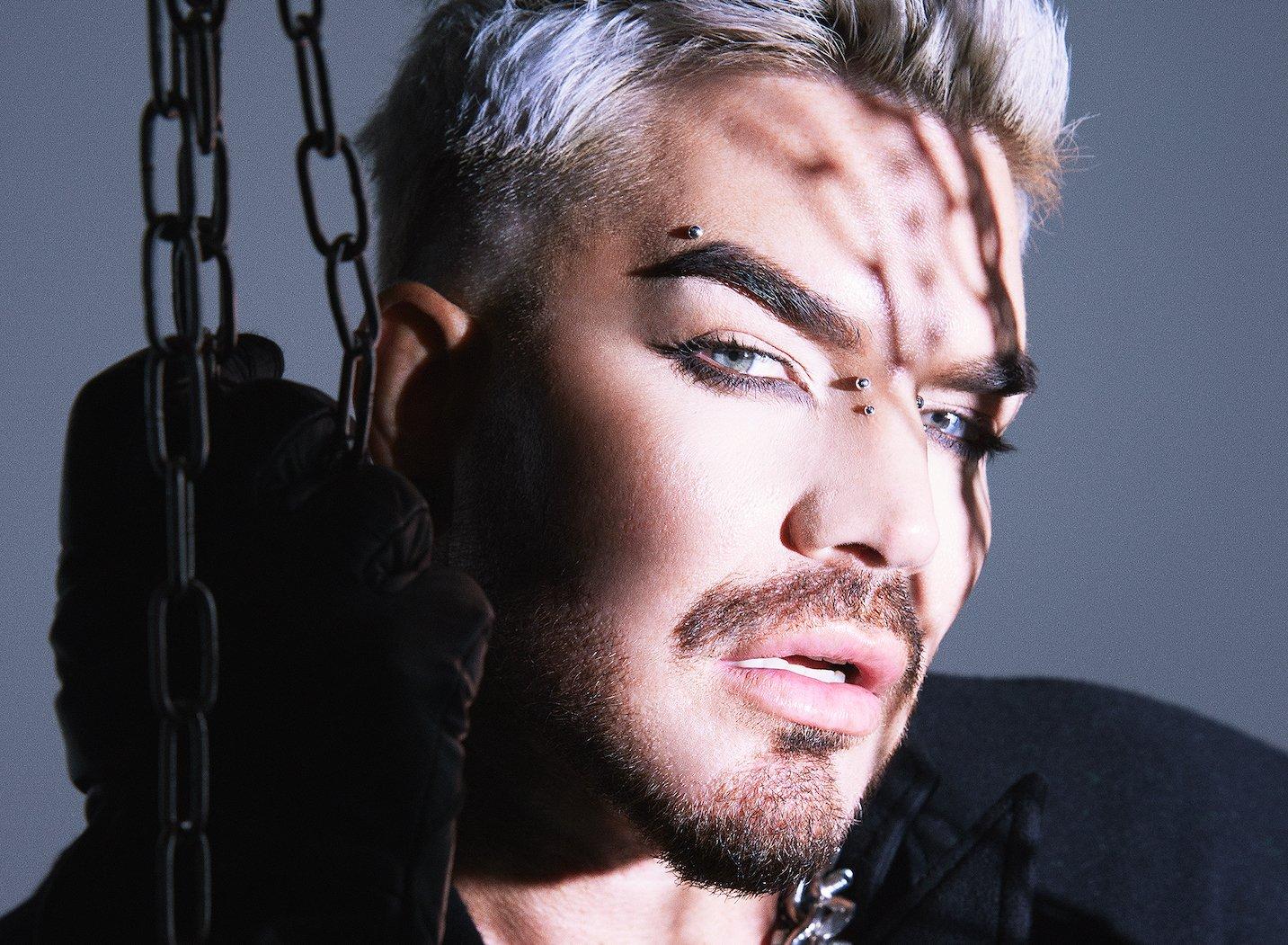
Photo: Brian Ziff
interview
Inside Adam Lambert's 'Afters': How '90s House, Clubbing & Lots Of Sex Inspired His Most "Liberated" Music Yet
With his latest project, Adam Lambert leans into his sexuality and queer nightlife culture like never before. The singer details the uninhibited inspirations behind songs like "WET DREAM" and "LUBE."
Fifteen years into his career, Adam Lambert is primed for the after-party. In fact, the pop star has made an entire EP for the occasion — fittingly titled Afters.
The six-track project, which drops July 19 via More Is More Records, finds the big-voiced singer trading the expansive covers of his last LP, 2023's High Drama, for a no-holds-barred romp that takes listeners from the club to the after-party to the bedroom and beyond.
"It's my love letter to our nightlife culture," Lambert tells GRAMMY.com on a phone call from New York City. And though he admits to recording the bulk of Afters in L.A., the project is imbued with the club kid spirit of New York's queer community — from the primal sexuality dripping off dual lead singles "LUBE" and "WET DREAM" to the strutting, ballroom-ready kiss-off (and nearly NSFW title) of follow-up track "CVNTY."
Ahead of the EP's release, the queer GRAMMY nominee (and frequent Queen collaborator) celebrated his new musical chapter with a special party at The Standard High Line's nightclub Le Bain. Organized by legendary NYC nightlife impresario Susanne Bartsch as part of her famous On Top! event series, the soiree felt like a full-circle moment for Lambert as he watched drag artists like God Complex and ShowPonii slay the house down boots to his new music.
"I've always really been drawn to that kind of world," Lambert says of the thriving LGBTQIA+ party scene. "I think even way back before '[American] Idol,' I remember being in L.A., when I was in my early twenties and trying to find the parties. They were pretty underground at the time, where people would dress up and wear crazy makeup. And of course, I was there in my platform boots, stompin' in. So I've always sort of sought out that community. I love it."
Below, Lambert takes GRAMMY.com through the colorful and unapologetically queer inspirations that led to Afters, from the '90s house sounds of Crystal Waters to finding freedom in radical creative expression — and, of course, plenty of sex.
Feeling Free — And Sexy
I've always loved electronic dance music, I've always loved house. And it's interesting because, for a long time, it was considered sort of "niche" for a gay person to make dance music. And now it just feels like it makes sense. [Laughs.] It's so obvious, you know?
I was working so hard for so long and on tour for so long, and I did a lot of tours with Queen and on my own stuff. I was so focused on my career for so many years, and then as the pandemic kind of faded and we were getting into that next chapter, I made some time for a social life. Which was much needed. That's what kind of inspired me to want to make this music.
I just wanted to make something that felt like my actual social life — that felt like my life. I'm in a relationship, we've made lots of friends in L.A., we have lots of after-parties. We socialize, we go out, we go to clubs, we go to bars. I wanted to make music for that.
My private life is...exciting is how I would probably put it, and passionate. So it's definitely fueled from that. The music is written in first person, but it's also sort of meant to inspire the listener to want to feel that type of freedom as well. You listen to something about sex and hopefully it makes you go, "Yeah! I feel sexy!"
Overcoming Post-'American Idol' PTSD
When I first came out the gate after Idol, I did a big old performance [at the 2009 American Music Awards]. I got in trouble for kissing the guy and having sexy dance moves and stuff, and that gave me a little dash of almost a PTSD of, like, "Oh, OK, there's a line that I can't cross. And if I do, I could risk losing everything." And that fear drove me down a certain path where I felt like I had to hold back a certain amount.
That was very much a reflection of where we were at as a society at the time, and what the mainstream was able to digest. The music industry was a different game back then. There were a lot more gatekeepers, a lot more obstacles that I encountered. Now, the industry has shifted so much, just in terms of how people get music, how you can reach your listener, how you can make music, what kind of label situation you have set up. There's a lot less filtering going on. That's what also inspired me to want to make something that was more liberated.
My perspective has shifted a lot. That fear early on came from a place of, "I don't want to lose this opportunity." There was a little dash of imposter syndrome in there. You know, coming off of "Idol," feeling like, "Oh my god, how did I get here?" It happened so fast. And I think just having stayed in the game over the last 14 years has given me a sense of confidence. It's given me a sense of belonging.
I've found more of who exactly I am over that time. Working with Queen has been a real boost in confidence as well, and has allowed me to sort of feel like I've earned something.
Setting The Mood
I love music that puts you in a mood, in a headspace. And that's what I wanted Afters to be. That's why I called it Afters. It was, yes, you could totally listen to these at a club, but it's also, like, lyrically, when you go to a club and then you go to an afterparty, the rules are out the window. You can do whatever you want, you know? And people feel that freedom.
There's something to be said about growing up a bit and maturing as a performer. You feel less of a need to prove something [vocally]. I think I'm finding less of an impulse to be, like, "Look what I can do!" and more, "Look what I can make you feel." The "less is more" thing does start to become more obvious.
As I've gotten a little older, too, my voice has shifted a bit. And I have, like, lower parts of my voice that I haven't really dug into before that I definitely did on this project. Which is kind of a fun experiment. I just wanted to do something that was more vibey.
'90s House & '20s Hyperpop
I like going into a project with, like, a reference and a direction. It gives you sort of a roadmap…I have a whole playlist of newer stuff that I kept adding. A lot of it's somewhat obscure, but then there's artists out there that I think are really cool, like Slayyyter [or] COBRAH. A lot of the DJs that I really like — Chris Lake is amazing. Even stuff like Disclosure… I really love them. I just wanted to make music that made me move.
I found myself gravitating towards a similar sound over and over again — sort of a dirty house, kind of sexy tech-house sound. Certain textures and sonics that I started noticing as a pattern of the stuff that I liked.
I love a good, soulful house vocal, always…Like Crystal Waters or any of those. I love that, like, '90s house vibe. And obviously "DEEP HOUSE" [on Afters] has a little bit of that. So does "WET DREAM," where you get into that soulful pocket. It's so fun to sing from that place.
Queer Voices In The Studio
It was really important for me to make sure there were queer people in the room when I was writing these songs. Back when I was first starting, the major label writing setups that I was put into, there weren't many queer people. And that's changed so much — there's more and more queer people in the music space. Definitely top-line songwriters, and then even more and more, I'm finding producers that identify as queer, and that's really exciting. 'Cause it makes everybody less afraid and just willing to sort of go for it.
"WET DREAM," I did with Sarah Hudson and JHART and Ferras, who I've known for ages. Vincint and Parson James worked with me on "LUBE." Just people that I really admire. Vincint did some background vocals on "LUBE," actually, which is cute. Vincint and I did a collab on his project recently as well, so that was cool that we got to each kind of add to each other's project.
A lot of the songwriters are friends of mine who I've known for a long time. I was like, "Do you want to do a song?" Which makes the writing process so much fun.
Queer Rebellion & Sexual Healing
I think, right now, people want to find freedom. I think people want to find an escape. There is a lot of sociopolitical energy right now that's kind of dark and negative, that's coming at us from the right wing, super-conservative side of the world. Some of that can make us feel dark as well, and kind of discouraged.
But I also think there's a lot of us, including myself, that feel like that lights a bit of a rebellious flame in us, and makes us want to shine brighter and be bolder and be wilder and crazier than we are. And [I] see that out and about: people are more and more expressive, emotionally, with their identity [and] how they want to explore [it].
There are members of our community that want to explore their gender identity; there are members of our community that want to explore their feminine side or their masculine side. There's, I think, more acceptance in that exploration and that expression right now than there's ever been. It's f—ing great. It's always been there in the [LGBTQIA+] community, but you're just seeing it on display a little bit more. People are more comfortable going there and exploring it, and I love that.
There's less and less shame around sex than there's ever been. We're more mainstream than we've ever been — there's more with social media and [pauses] other types of media on the internet. And that's really exciting. 'Cause sex is f—ing great. And healing, and wonderful, and exciting. It's our human right to explore our sexuality, and I see more people feeling freer in that.
Finishing With A Climax
One of the Afters songs, "FACE," was actually created a while ago. I wrote that with Pete Nappi, like…four-ish years ago? During the pandemic, I think. But it sounded very different. And once I started getting more house tunes together, I kinda was like, "OK, can we take this idea and evolve it into a higher BPM and a dancier kind of direction?"
We sped it up, we added a bigger beat to it, more of a four-on-the-floor feel to make it feel "club." But it's definitely the last track on the EP for a reason. 'Cause it slows down compared to the other songs a bit. If the rest of the EP is foreplay, it's sort of like the home run. [Laughs.] It's like once you get that person that you've been into all night into the bed, what happens?
Latest News & Exclusive Videos

14 Pinoy Pop Acts You Should Know: G22, Maki, KAIA, ALAMAT, & More

Watch Loretta Lynn Win Best Country Album In 2005

New Music Friday: Listen To Songs From Lady Gaga & Bruno Mars, LISA & Rosalía, Benson Boone & More

On Their First Album In 7 Years, Foster The People Explore A New State Of Mind

The Recording Academy's Los Angeles Chapter Celebrates The NEXT Class Of 2024: Building Community For Future Leaders
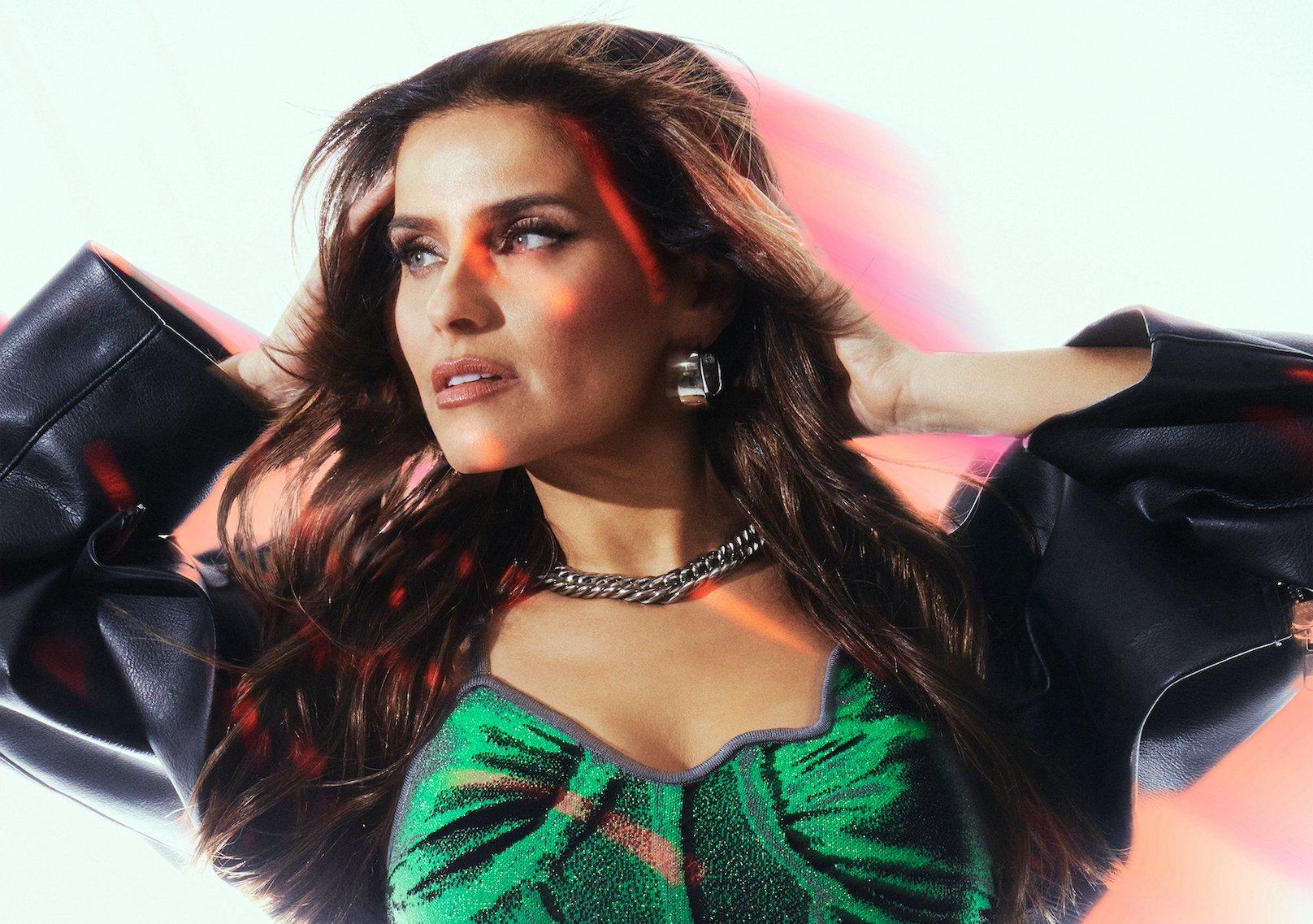
Photo: Sammy Rawal
interview
Nelly Furtado On How Remix Culture, ADHD & Gen Z Inspired Her New Album '7'
On the heels of announcing her seventh studio set, Nelly Furtado details her emotional return to the studio, and why she's having "more fun than ever" making music.
If you're a millennial, odds are you have fond memories of Nelly Furtado's music. Her early hits are 2000s playlist staples, including her GRAMMY-winning debut single, "I'm Like A Bird," and Timbaland-produced classics "Say It Right," "Maneater" and "Promiscuous."
Yet the Portuguese-Canadian pop auteur is far from a relic of Y2K nostalgia. In the seven years since her last album, 2017's The Ride, Furtado has seen her back catalog resurface in many ways, from remixes in DJ sets to viral TikToks. Not only did the millennial appetite for her music remain, but Gen Z was discovering — and loving — it. And the singer/songwriter took notice.
"I really feel like I was called back to the industry by the industry, especially DJs. I would go out and hear my songs played before arena shows of other artists, and at house parties and clubs," Furtado tells GRAMMY.com. "There was a sense of joy and celebration in it…I thought, This can only be remixed so many times, I better go make some new stuff."
Enter 7, Furtado's aptly titled seventh studio album. Due Sept. 20, 7 is the product of four years of fully immersing herself in the catharsis and connection of the studio. The Canadian songstress is confident and vulnerable across its 14 tracks, showcasing the malleability of her rich voice with a wide range of sounds that result in a fun, largely upbeat collection of songs.
The album's energy is indicative of the freedom and openness Furtado not only felt in the studio — where she crafted over 400 songs during the process — but also in today's musical climate. Furtado has been tapping into the collaborative spirit of the industry, teaming up with friends new and old for her latest material. Producer Dom Dolla helped birth Furtado's first new music since 2017 with the dance floor heater "Eat Your Man," a coy nod to her own "Maneater" that arrived last June; their partnership has also included appearances at Australia's Beyond The Valley festival in 2022, Lollapalooza and Portola Fest in 2023, and Coachella 2024. Along the way, the singer has also linked with past collaborators Timbaland and Justin Timberlake ("Keep Going Up") and Juanes ("Gala y Dalí").
Even 7's first two singles are collaborations: the sultry electronic-fused bop "Love Bites" with dance pop experts Tove Lo and SG Lewis, and the confident anthem "Corazón" with Colombian electro-pop wizards Bomba Estéreo. Along with offering a taste of the joy and sonic breadth of 7, both songs prove that Nelly Furtado isn't just back — she's having more fun than ever.
Read on to hear from the "Maneater" herself about her new album, finding sisterhood with Bomba Estéreo's Li Samuet, leaning into ADHD as a creative superpower, and why she'll never tire of singing "I'm Like A Bird."
You feel really free on your upcoming album, 7. I was curious what sounds and styles you're feeling most excited to explore and lean into now and which ones made it on the album?
That's a good question. When I was touring over the years, you always soundcheck at each venue, which might be this big, beautiful space, like a theater. I love the way the music would come back at me through the big speakers and monitors of a large live space, and it's something I never quite felt in the recording studio.
When I started recording this album four years ago, I started getting a bunch of friends in a room, setting up wedges and monitors and speakers with a bunch of microphones on amps and instruments, recording absolutely everything we're saying and doing. I started recording in Toronto and would invite my friends, and all of a sudden, I found myself spending Friday nights there. It became this very social event with lots of collaborations. I loved the way my voice sounded back at me through the speakers in real time, much like those soundchecks I remembered so fondly.
Halfway through the recording process, I started meeting producers like Dom Dolla. We had reached out to each other because we were going to perform at the same festival, Beyond The Valley in Australia, where I also met SG Lewis. I was blessed to meet these really key collaborators for me who are making great current music I had special connections with. I just felt blessed to be so open.
I grew up learning a spontaneous style of improvisational singing called Desafio from Portugal, where people freestyle on stage together. [We channeled] the spirit of spontaneous freestyling in the studio. I have songs on this album that are freestyles. There's this beat that FnZ did, and I just opened my mouth and sang something, and that's the song. I went back and changed maybe three words and re-sang the vocal. You just kind of open the portal and sing. [Laughs.] For me, this album's really about community and, always, fusion.
Can you speak to how your daughter, as well as seeing Gen Z discovering your music on TikTok, and DJs remixing your songs encouraged and inspired you to go back to the studio?
Oh, that was cool. Dom had been communicating about [his Beyond the Valley] performance because he did a special mashup of "Give it To Me" and [his song] "Take It" that we premiered there. To top that off, he wanted to do the Bicep "Glue"/"Say It Right" [mashup]. He created this whole archway for me to come out and do this dramatic, beautifully received rendition of the song. That was a magical moment I'll never forget.
Four or five years ago, my daughter came home from high school and was like, "Mom, you're trending on TikTok." I didn't know what that meant. I'm not gonna lie; it wasn't until I walked out at Beyond the Valley and saw these Gen Z kids singing all the lyrics to my songs that I really understood the power of social media and TikTok. It was real; new people had discovered me.
I just went to Stockholm and these kids were so young, singing every word of my old songs, and it blew my mind. I don't even know if they were born when the first records came out. [Laughs.]
I mean, people dressed up like Dom Dolla and I at Lollapalooza for Halloween with my same snake shirt. It was so meta and so cool. I love remix culture and nostalgia culture, and I lean into it. It's just like making a scrapbook.
Did that motivate you to want to make new music?
Oh yeah, are you kidding me?! I really feel like I was called back to the industry by the industry, especially DJs. I would go out and hear my songs played before arena shows of other artists and at house parties and clubs. I heard it in a lot of different contexts, and something clicked for me where I just wanted to have fun and party with my music. There was a sense of joy and celebration in it. People kept remixing all kinds of songs of mine from all my different albums. I thought, This can only be remixed so many times, I better go make some new stuff.
I love meeting artists online and making those connections in real time. I love the current climate of music. I think it is more fun than ever for artists, because we get to be very in the moment and we get to create moments. We get to focus on what we want to, we get to activate different things in our own way and on our own timeline. I connect with so many DJs online.
That's so my vibe; I've always been about collaboration. I feel like the industry is tailor made for artists like me right now who just want to collaborate and vibe out and make friends and have fun. I've always been in it for the music, so it's just so fun to be doing this.
7's second single, "Corazón" featuring Bomba Estéreo, is very confident and celebratory. What was it like working with them and how did that song come together?
"Corazón" started with this very special beat that T-Minus had made for me. He was such a champion of me doing this new project, and really pushed me to make sure I was putting my best foot forward with these new songs. The beat for "Corazón" was already magical, but I needed to find its stamp. [Working on the album] was like mining. You're digging until you see a glimmer, and then you chase it until you [hit] gold.
I co-produced the song and invited Bomba Estéreo to be on it. I brought them to the studio after a concert they had in Toronto. I got off a plane from recording in L.A., went straight to their gig, and embraced Li on stage. I hadn't seen her since I flew to her home on the beach in Santa Marta [Colombia] at the begging of my friend Lido Pimienta, who thought I needed to go meet Li. I'd never met her before [then]. I stayed at her home and met her family. She's an incredible woman. She's really a goddess.
We're at the studio [in Toronto], just eating chicken wings and having some tequila, and magic kind of happens. They're playing all these beautiful parts on their instruments. There, you get the fusion. It becomes something a little bit more than the song was before, and Li has her rap feature on there.
How did bringing Bomba Estéreo into the studio make the "Corazon" into something different?
I just knew it would make it more special. What's really weird is Li and I have another song that's not on this album— that will probably be on the deluxe — called "Corazónes" that we wrote in Colombia. I don't think it's a coincidence that this song is called "Corazón." I think it's some weird subconscious tick. [Laughs.] It was almost like the collaboration was meant to be more than one song.
Colombia made such a huge impression on me. I also spent time in Barranquilla because Lido was filming artwork for a project of hers; we were right in the thick of it in downtown Barranquilla. Li and I wrote a song at her treehouse jungle studio called Papaya Studios in Santa Marta. I really needed that sisterhood at that time. That trip was almost like a woman's retreat.
I just knew Bomba Estéreo needed to be on the song. I wanted [Li] to rap. On "Soy Yo" she's rapping and doing her thing. She's a really amazing rapper. She's an amazing singer and writer too; she's pretty rare. She's in her own lane.
I really connect with how Bomba Estéreo's music has a love vibration that I think is very rare. That's what sets them apart. That's why I knew they had to be a part of this song called "Corazón." They embody that idea.
Can you speak a bit more to the creative process of working on this album, as well as the emotions you were processing through it?
On this album there are some cool moments where I just let the music happen. Something clicked in me the last couple years where I realized it's really quite simple: You just have to enjoy what you're singing.
I was in the studio with Dom Dolla, producer Jim Beanz [who worked on Loose] and singer/songwriter Anjulie [Persaud] in Philly last Valentine's Day. We recorded and wrote "Eat Your Man," a track I put out with Dom last summer. Very early on when we were working on demos, Dom was like, "Why are you pronouncing every word when you sing?"
There's something to letting yourself relax into the music and just letting it be. I kind of forgot that. In the studio with Dom that day in Philly, it was a real aha moment for me. It was like, Oh man, I remember what this is like, just singing for the joy of it all.
Emotionally, I got into the studio four years ago with a bit of a broken heart. I'd been through a lot in my personal life and I was quite sad. The first day I opened my mouth, I almost felt like I was having a heart attack from the amount of emotion moving through my chest. I had been a stay-at-home mom for about three years straight — my two youngest children were born a year apart — and I didn't go to the studio at all. So that first time back was quite impactful for me.
That pain quickly turned into joy because I started spending Friday nights at the studio with my friends and collaborators. We would often jam until 7 in the morning. The studio is my happy place. I really learn so much about myself every time I make an album. It's uncanny; I have this moment before I put the album out where I'm almost sad because I have to detach from the process.
I've become overcome with emotion a lot of times making this album, hearing the mixes back and completing songs. I did purge a lot of emotions, but it's amazing how happy the album is.
I think that comes from the sense of community and really leaning on people I've met along the way. I met moms who make music during this process, like Li and Lido. I'd be coming home from the studio texting them, and they'd be coming off the stage in Holland or Paris and I'd feel so motivated. Community is such a huge part of this album. I loved welcoming that into the mix. It was really fun to make.
How did you take all of that — four years, so many emotions, over 400 songs — and narrow it down into an album? I can't even imagine.
I was diagnosed with ADHD about two years ago, and it was really an aha moment. I've had it my whole life. People always say, "Hey, Nelly, you're so spaced out. Where'd you go?" I got used to people making fun of me for spacing out and used to the procrastination. I [also] got used to the self-judgment and beating myself up about it.
So, getting diagnosed kind of changed my life. It is a superpower in the studio. I can write five songs at once. I can invite so many people. We can have two rooms, sometimes three, going at once and we can keep making stuff all night. So I leaned into the ADHD, embraced it, claimed it — and there we have it, so many songs.
Luckily, I have great people around me, like my engineer, Anthony [Yordanov], really kept me in check. He became that North Star of, "Okay, these are the songs we have. What are we working on today?" Also, my daughter Nevis [Gahunia] is one of the A&Rs on the album. She works in the music business and is very organized.
I leaned on other people to help me hone it in. I don't know how a bunch of stuff magically becomes 14 songs. It kind of happened by bringing a lot of friends in the studio for these long, fun parties just listening to stuff and everybody being like, "We like this song."
I have a lot of my favorite people on the album. And there's a lot more to come. I really feel like the deluxe [version] is going to be jammed with a bunch more stuff.
It's your seventh album and it's been seven years since your last, but is there any further meaning in naming it 7?
To be totally honest, the songs are all so different. It was the only title that made sense because it's more like a collection. Fashion collections don't really have titles, they're just called collection number 10 or 21. This is my collection seven.
And yeah, it's been seven years since my last album, and it's my seventh album. I love the simplicity [of the title]. Honestly, sometimes I feel a bit like a music librarian trapped in a pop star body. So it's really appropriate for me to put together this random collection of songs and just call it a number, like a librarian. [Laughs.] Go to the seventh section.
I want to go back to the very beginning, to "I'm Like a Bird," your GRAMMY-winning debut single. How does it feel now when you perform that song you wrote when you were 20?
I wrote it in a little room by myself before [going to] the studio. When I sing it, I love it. It's wild, I love it more every time I sing it. It feels incredible singing that song.
There are certain songs in my set that almost feel like one big fun karaoke session with the crowd. Who doesn't love that? It's fun every single time.
More Sounds From Latin America & Beyond
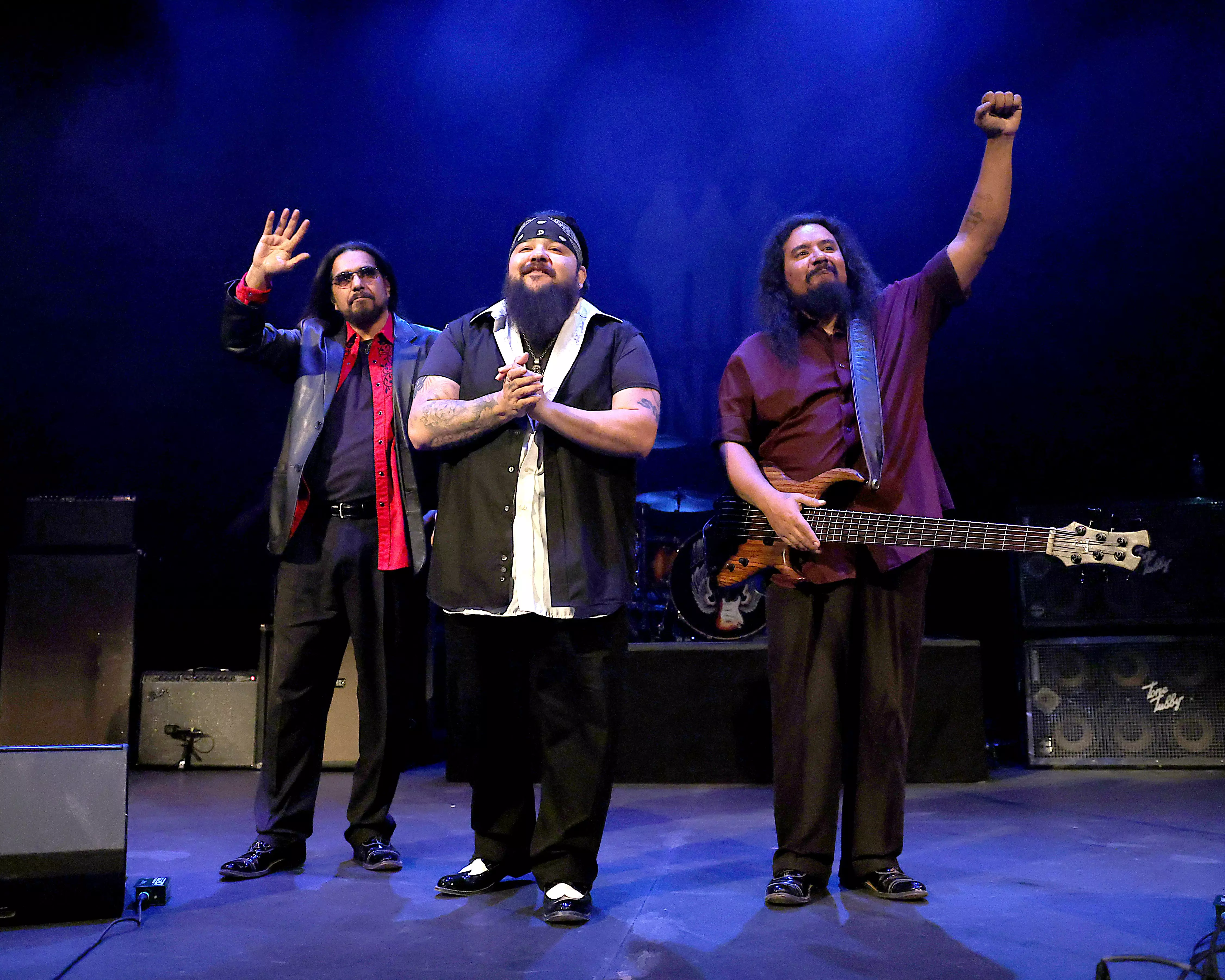
Los Lonely Boys Resurrected: The Sibling Rockers Talk Their New Album, Return To The Road & Family Magic
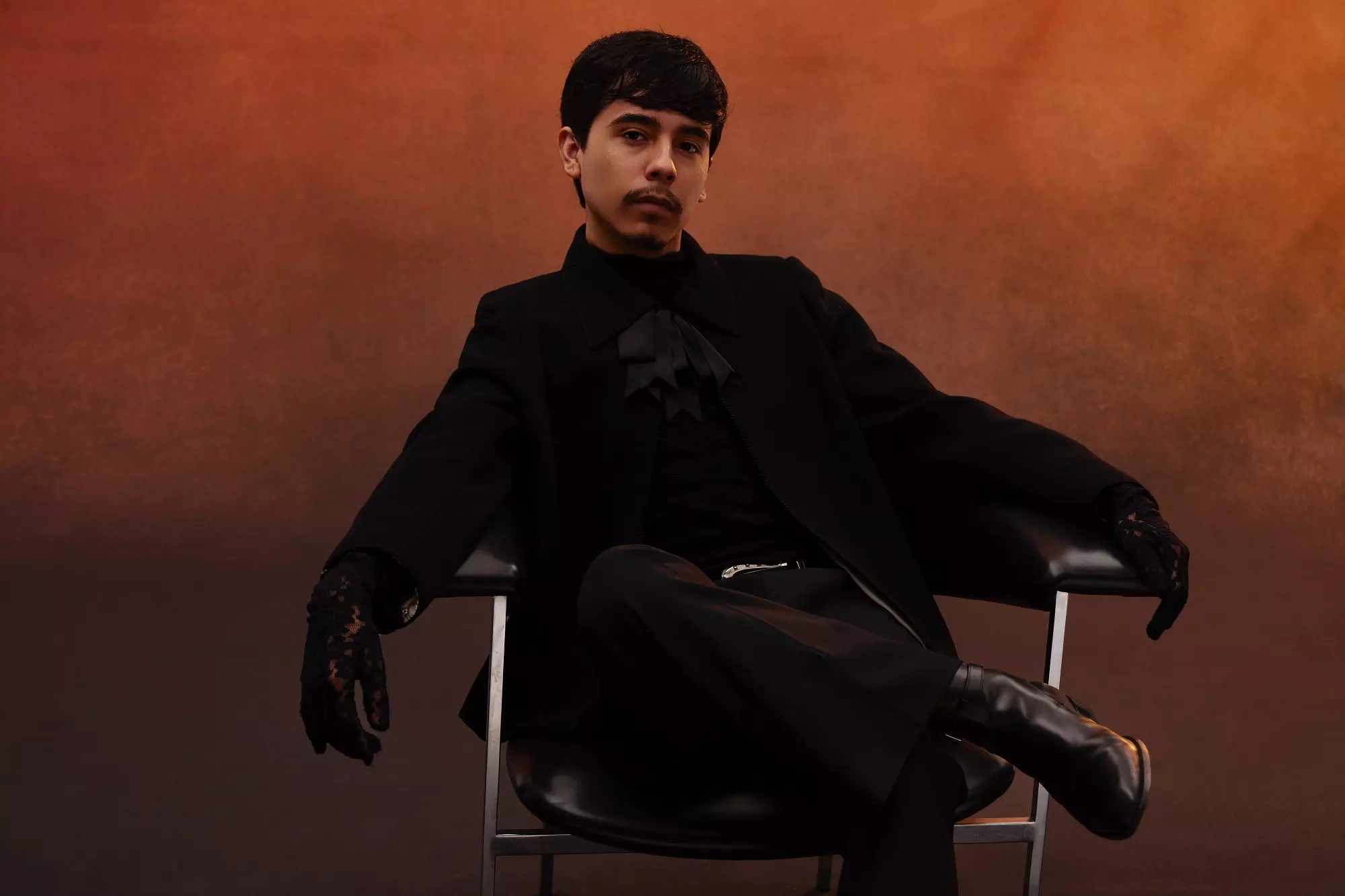
On 'Mirada,' Ivan Cornejo Redefines The Sound Of Sad Sierreño And Helps Fans Heal Through Music
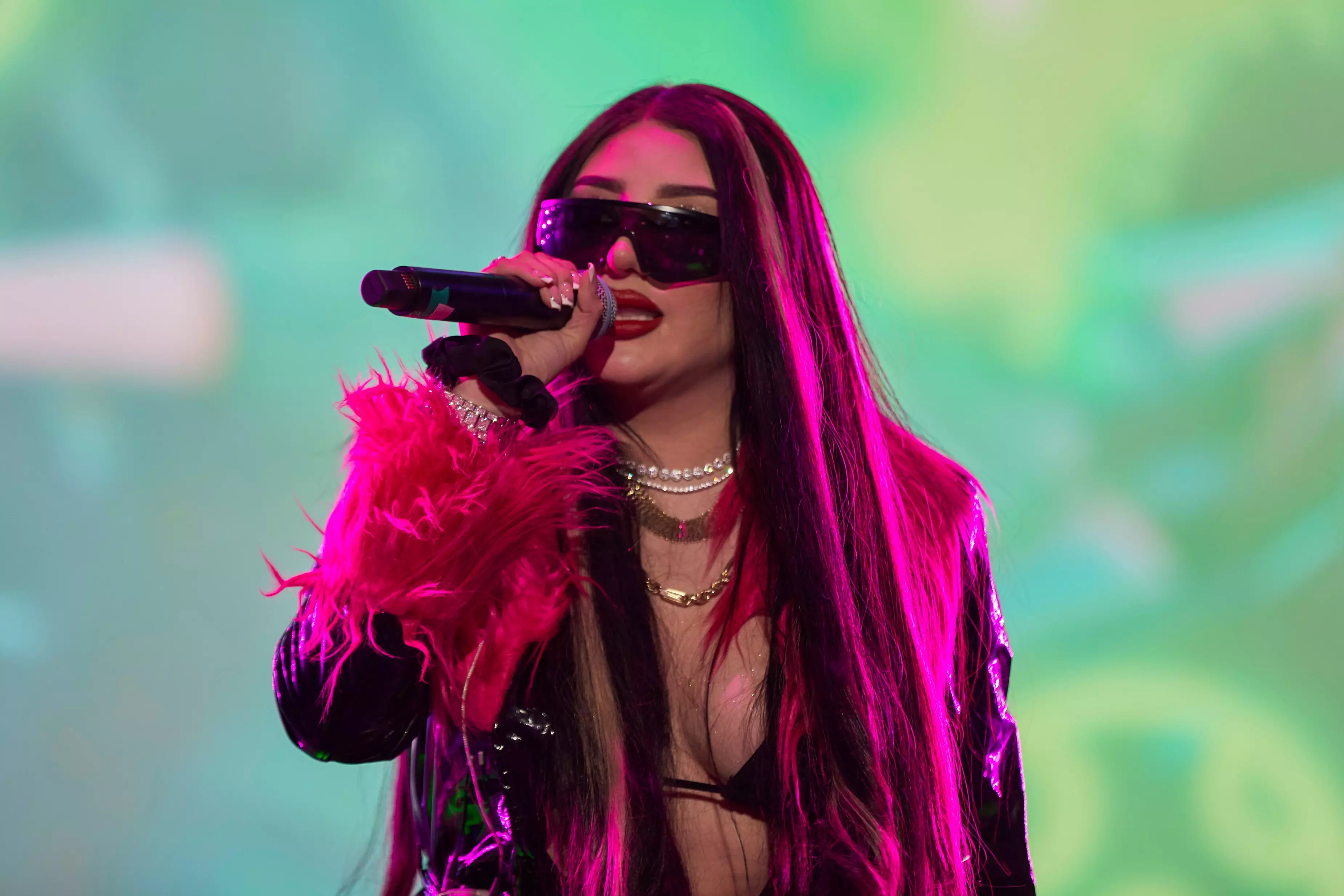
7 Artists Bringing Reggaeton Mexa To The World: El Malilla, Bellakath & More
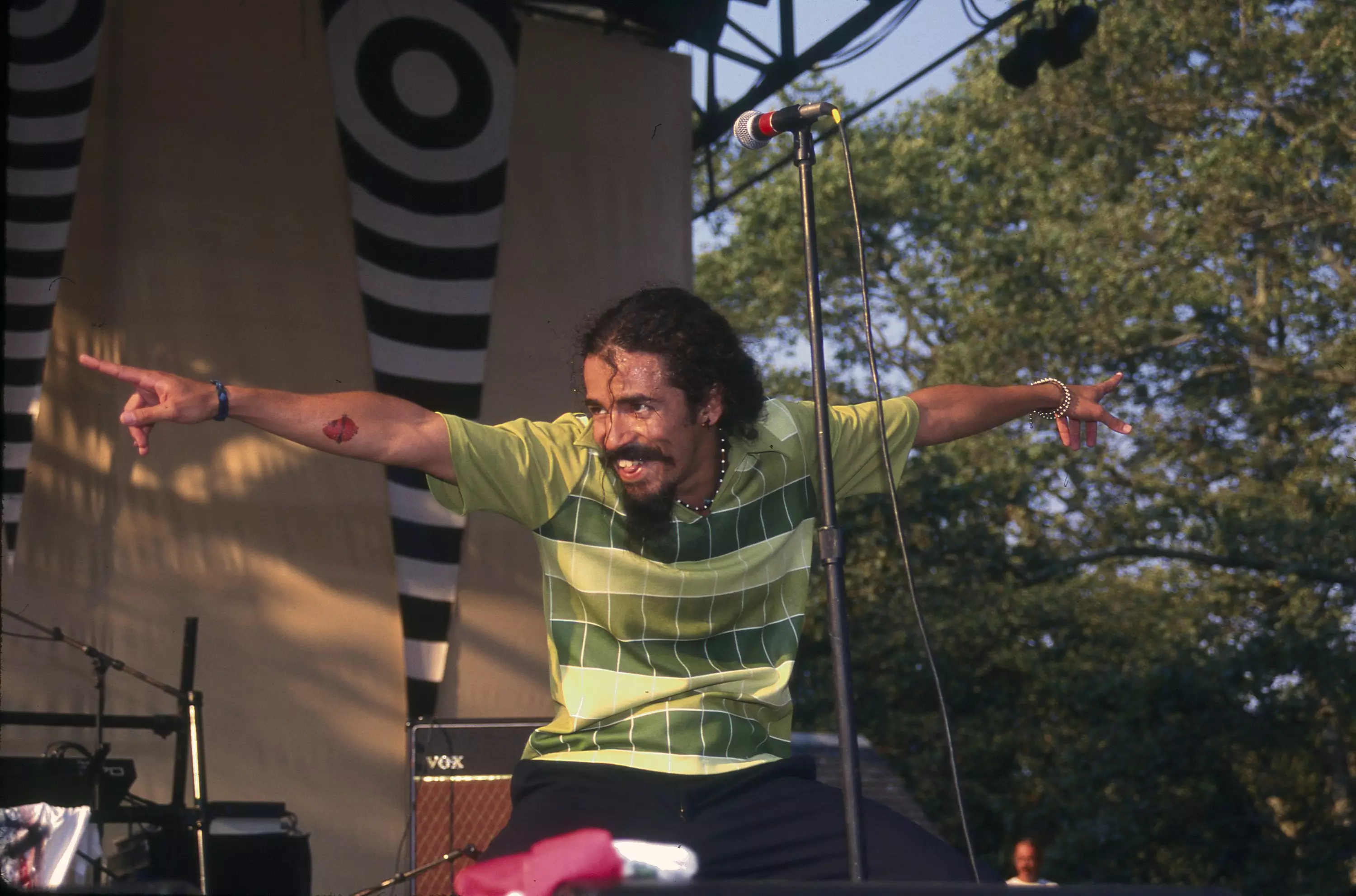
Revisiting 'Re': How Café Tacvba’s 1994 Masterpiece Changed Mexican Music Forever
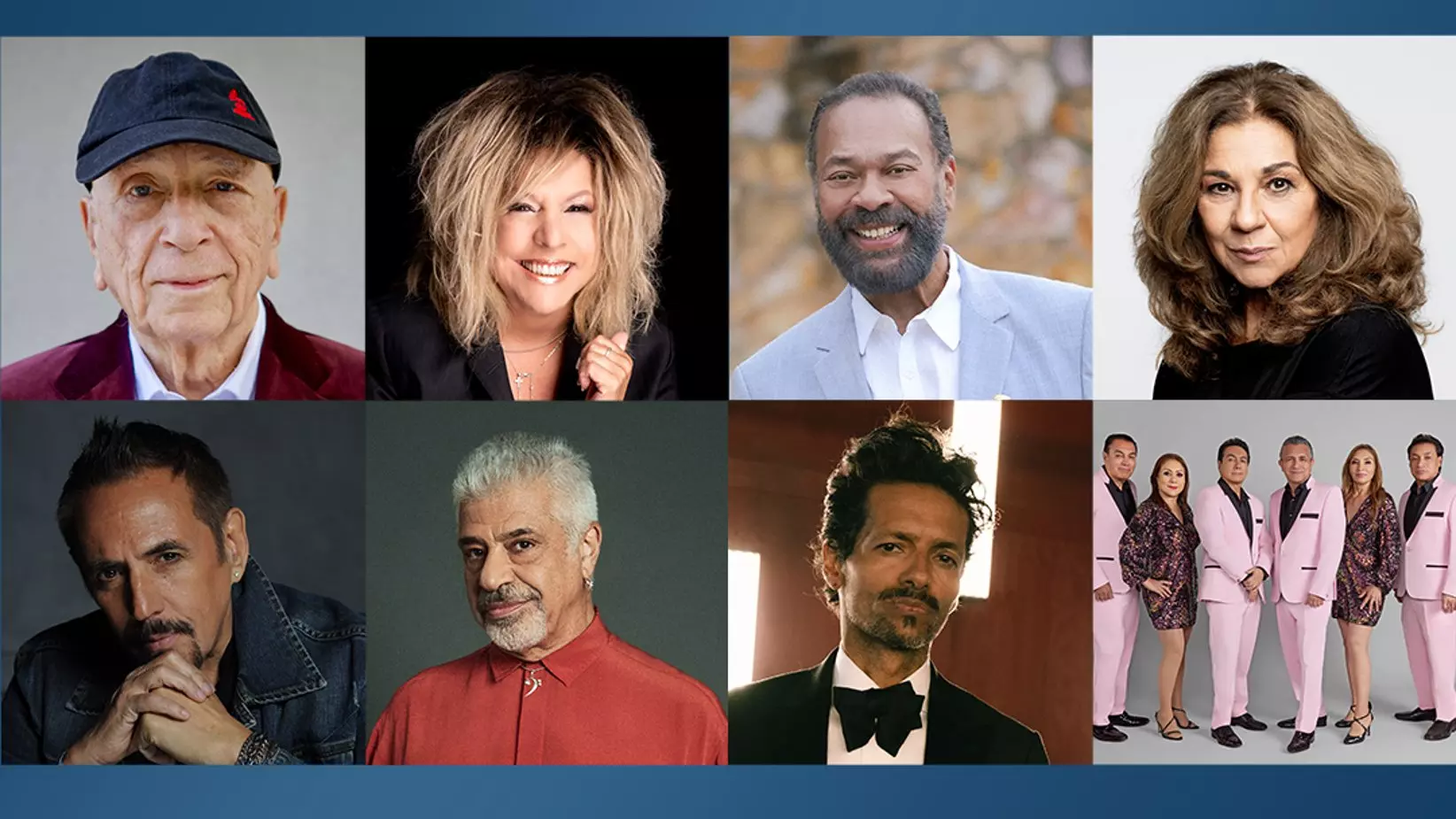
The Latin Recording Academy Announces 2024 Special Awards Recipients: Los Ángeles Azules, Draco Rosa, Albita, Lolita Flores & More
